#creating an environment where we can’t talk about them for fear of being othered makes people unsafe
Explore tagged Tumblr posts
Text
I wrote this several months ago. My stance has not changed. Calling people “questionable” or “freaks” or [other words to make people othered] because they enjoy fictional content that you find disgusting is another way of drawing lines in the sand. Ships between fictional characters have no moral valence: they cannot be morally corrupt, and they cannot be morally pure. They are just taking your dolls and making them kiss.
Fiction does affect reality, but not in the ways people think they do. Jaws, for example, was not supposed to be anti-shark propaganda. That was not the intent of the creators - they just wanted to create a horror story about a huge shark and the little town besieged by it. It’s not their fault that the general public saw a horror story that’s as much about the reaction of the town as it is about the shark, took it to mean “all sharks are evil,” and did nothing to evaluate that initial, knee-jerk reaction.
Another famous example is Lolita: this book doesn’t turn people into pedophiles. Rather, it forces us to examine up close an uncomfortable, even triggering, story about American culture, told by an immigrant who observed 1950’s McCarthyism as an outsider. This article does a great overview on why Lolita is important to teach in a class on the author, Nabokov; and it touches on why studying Nabokov at a college level is an important study in context and critical thinking.
In the case of “questionable” ships in fandom: shipping ships that make you uncomfortable does not make the people doing the shipping pedophiles/abusers/incestuous/etc. There is nothing inherently evil about people who ship things that would be unhealthy in real life. Just as writing a dissection phic and enjoying it doesn’t mean we want to vivisect a 14 year old irl, creating content depicting a “questionable” ship and enjoying it doesn’t mean the shipper wants that for other people irl.
On the other hand, making a ship taboo because it elicits a reaction of disgust, or because it’d be an unhealthy dynamic irl, creates an environment where we can’t talk about these things, or think critically about these things. In this Phandom, we largely have no trouble torturing Danny in creative ways. Those who are uncomfortable with how we treat the boy in fiction tend to block and move on. They do not call into question our morality. They do not call us names, or use derogatory adjectives to other us. And because of that, we have room to talk about and enjoy nuanced ways we can take a kernel of real life, and stretch and expand it to something horrific that we enjoy in a fictional setting. Why is it, then, when it comes to shipping, everything is so taboo? Why is it, when someone ships The Big Ship That Everyone Is Supposed To Hate, that hatred and casual cruelty get folded back onto the shipper?
It isn’t fair. It isn’t right. These people are just people who enjoy fictional content that you don’t like. Acting like they’re somehow worse than you or “questionable” for shipping something that makes you uncomfortable is a terrible moral stance. As I said in the above post, once you start drawing lines in the sand, especially if those lines are measured by personal disgust, you enable someone else to shove you on the other side of that line and call you disgusting.
And ultimately, those lines don’t keep people safe. There will always be people on either side of the line who will do something to harm someone else. Trying to root out those people by vetting their ships does nothing, because irl harm is not associated with what people ship. Fiction affects reality, but not in the ways you think it does. By drawing lines in the sand and making everything on the other side of that line taboo, you are creating an environment where we can’t speak freely about nuance. When everything on the other side of the line is a ship that makes you uncomfortable and the people who ship it, the space you have left has no room for genuine, nuanced conversation. Only knee-jerk reactions of disgust, and the self-soothing choice to reassure yourself and those around you that you’re not “one of those freaks” on the other side of the line you drew. How can there be any conversation besides “the ship and those who ship it are bad because [triggering buzzword]”? How can anyone safely navigate the actual gray and blurry areas of real life that are explored in a fictional setting, when that fictional setting and those who explore it are considered taboo?
And to be clear: it’s okay to find a ship disgusting, and to block mentions of the ship. It’s okay to block blogs that put the ship on your dash. That is your own personal reaction, and your own personal way of dealing with that reaction.
But a lot of what I’ve been seeing in Phandom is the knee-jerk reaction of drawing lines in the sand due to disgust at a ship (we all know the Big One), and then blaming that disgust on those who ship it, rather than recognizing that your own emotional reaction is yours to own and handle.
We as a Phandom can do better than this. We in the Phandom need to evaluate our own biases. This includes me. We need to think beyond “ship bad because [triggering buzzword]”. Ships depicting things that make you uncomfortable do not cause the thing they are depicting to manifest irl. There’s a lot of conversation about nuance and how to handle unhealthy, blurry, gray situations on the other side of that line you drew in the sand. Maybe, if you learn to look past your own knee-jerk reactions, and if you approach people who like ships that make you uncomfortable with an open mind and with grace, you’ll get to see some of those conversations. Maybe you’ll find friends in people on the other side of that line. Maybe you’ll see that there was never a line to begin with.
TLDR: uncomfortable fandom content does not cause the uncomfortable content to manifest irl. When we make a ship and the people who ship it taboo because [insert triggering buzzword here], we create an environment where we can’t speak openly about nuance and gray areas, and where we’re more worried about separating ourselves from the taboo than we are about having real conversations about real things that make us uncomfortable. When we draw a line in the sand based on disgust at seeing fictional content that makes us uncomfortable, we enable others to shove us on the other side of that line and declare us disgusting.
Phandom folks who enjoy the Big Ship that people like to hate on are just as valid in their enjoyment as Phandom folks who like to dissect Danny in their fictional works. Neither of these things manifest what they depict irl; rather, in an environment where they’re not taboo, they spur nuanced, genuine conversation about what they depict. When we draw a line in the sand and throw these things on the other side of that line, we don’t get to see those conversations. If we we stop drawing lines in the sand, and start owning our own emotional reactions as our own, we might get to see and be a part of those conversations.
So... this isn't the first time I've seen people being incredibly mean to a whole section of the phandom. It's the first time in a while I've seen a post this bad in the main "danny phantom" tag, though. I have Thoughts™ that have been stewing for a while. Thoughts™ that shouldn't be put in the tags of someone else's post.
I'm not going to link anything. These are just my thoughts, raised to the forefront by recent posts in the main tag.
TLDR: I have two main Thoughts™:
No matter what you ship, I welcome you to this phandom. The folks who openly despise real people for shipping fictional things do not represent all of phandom. Y'all deserve better than being called shitty names. Your ships do not make you a bad person, and I personally welcome you.
To y'all who keep trying to draw a line in the sand to define who is "degenerate" or whose work is "degenerate": the moment you draw that line, you create a way for others to shove people behind that line. And the folks who usually get shoved behind that line and called "degenerate" are lgbtqia+ folks, and sa/csa survivors. It's happened before on LiveJournal and FFN, and it's happening now, irl, with book bannings across the USA (and especially in Florida). The only way to protect lgbtqia+ folks and sa/csa survivors from this abuse is to not draw a line in the sand at all. Don't call folks "degenerate" for any reason, unless you're ready to have that finger pointed back at you by a larger and more negative movement.
If you desire fuller context, it's below the cut.
First: no matter what you ship, I welcome you to this phandom.
The views of hatred and disgust that pop up in this phandom don't represent all of phandom. No fandom is perfect, and we'll always see some form of the "logic of disgust" from some folks in any fandom. But no matter what you ship, and whether or not I personally ship it, I welcome you. You will find no disgust from me as I am now.
If you dig backwards into my blog, you might find some anti sentiment. My introduction to fandom was first FFN, and then tumblr, back when I was more of a black-and-white thinker. I'm pretty sure I experienced some form of shock when I really started digging in to the Wild West that is fandom. I don't know if I ever expressed this shock online. But none of you deserve to be called "degenerates" over liking whatever fictional content you like. Y'all are a part of phandom, too, and any attempts to erase you or deride you are wrong.
We shouldn't be drawing lines in the sand and throwing people behind those lines. That's dangerous.
Second: to y'all who keep drawing lines in the sand, please consider the broader context around you.
The moment you draw a line in the sand to delineate between you and your group of people, and "them" and their group of "degenerates", people find ways to shove other folks, including you and your folks, behind that line. Historically, both in fandom and outside of fandom, the folks who get shoved ALWAYS include lgbtqia+ folks, and sa/csa survivors. We saw this with the purging of LiveJournal. We saw this with the multiple purges of FanFiction.Net. We haven't seen this with ao3, as far as I know; but their stance seems to be very anti-censorship for fandom-historical reasons.
Outside of fandom, we are seeing this now. I'm doing my senior capstone project on book bans. According to PEN America's data, over the past school year alone, 154 counties in 34 states have banned 1557 books 3362 times overall. Over 40% of those bans come from Florida counties. And much of the "reasoning" behind these bans is the same logic of disgust that fandom applies to "problematic ships": They call it pornographic and pedophilia. They call it harmful and age-inappropriate. They largely target books about lgbtqia+ people and people of color. And this year, they've also targeted "books on physical abuse, health and well-being, and themes of grief and death" - expanding their censorship to "protect the children".
Censorship doesn't protect anyone. Instead, it prevents people from holding genuine conversations with real people about the censored material.
And if you're not ready to have that conversation, that's fine! You do you! But don't create an environment where other people can't have that conversation. That only breeds the sort of black-and-white thinking that leads to 1406 book bannings in the state of Florida.
This is just speculation on my part: but I reckon every single person who supports those bans would love to ban the same content you want censored. And they'd call for you and the content you love to be lumped in with them.
We all deserve better than that. So please stop drawing lines in the sand.
#danny phantom#phandom#fandom#fandom wank#food for thought#fictional ships do not cause what they depict#creating an environment where we can’t talk about them for fear of being othered makes people unsafe#because the world is full of nuance and gray areas and blurry lines#and if we can’t explore these things from the safety of fiction#we are ill prepared for if we encounter them irl#bib speaks#bib write#bib work#i’m tapping the sign#ship and let ship#othering people for what they ship is mean#and it hurts people who are just making the dolls in their minds kiss#that’s all shipping is#it’s just playing with dolls#no one should have to be afraid to play with dolls#long post#not a q
430 notes
·
View notes
Note
Do you have any tips of how to write a villain that is a bad person, but is also likeable?
There are several options for writing villains that build the foundation for a reader’s perception of just how evil they really are. The villain is often a story’s antagonist but can also be the story’s main character. But they are not always a pure evil character. So how do we create a villain that our readers will like?
Sympathy
The strongest way to bridge the gap between your villain and the reader is by appealing to sympathy. A tragic backstory goes a long way in setting the stage for a character’s fall to villainy. Many people can identify with the fear—or knowledge—of how much one bad thing can persuade someone to do bad things. No matter how strong a person appears, there’s an extreme situation that can push anyone to make a bad choice.
The two common avenues you can pursue within the sympathy track are the impossible situation and desperation. To embody the ‘impossible situation’, your villain’s motivations need to stem from something where the bad choice was the only real choice. In a fantasy world, your villain may be a dark wizard that was an average person before they were abducted by a larger evil force, and forced to become evil or die. They may be indoctrinated into the wrong cause now—thus becoming the villain. In a modern setting, your villain may have grown up in an environment that promoted crime or violence as the only way to live.
Desperation is a good motivator when the villain needs to gain (or re-gain) something, and there’s a “bad” option that will get the desired results faster. Perhaps your villain had to make a terrible choice to keep their livelihood or significant other, and covering up that choice continues to make their actions antagonistic. More specifically, desperation shows up in a pivotal time of need: where someone could take the high road, but we understand the appeal of the so-called low road.
So how do we keep the sympathy real?
Your reader needs to see how they, or a loved one, could stoop to the villain’s level. This may be the most difficult part of creating this character because you can’t appeal to every individual member of your audience here.
I suggest starting with research on whistleblowers (people who report illegal or unethical business practices that are undeniably in the ‘right’ but are certainly the ‘villain’ to the company) and thinking about the perspectives of the business’s employees. Many of them didn’t know about the wrong their company was doing, so now they’re angry with the whistleblower for taking away their jobs or ruining their professional reputations. Then, think about the people who were aware of the acts and were eager to keep profits high at the risk of getting caught.
Do you need a redemption arc?
Nope. People go too far sometimes, and there’s no saving them. For some people, redemption may only come in their total and utter defeat, whether they’re imprisoned, killed, or otherwise incapacitated.
If you are considering a redemption arc, you need to stick to the character’s established principles: it was all for nothing if their villainous actions are washed away by regret or the hero’s need to defeat them. We sympathize with conviction — you have to let your villain keep theirs to maintain character integrity.
A villain can realize their actions were wrong (murder often isn’t a good answer!), but they need to still believe in their actions, even if they wouldn’t do it again. A likable villain does the wrong things for the right reason. Stripping them of that reason strips their character of meaning. Who are they, in the end, if they were a monster for no reason at all?
Perceived injustice and your villain
I want to talk about using perspectives and hidden information to play on the sympathy of your readers. If the circumstance that led to the villain’s actions was a lie from the start, the audience gets to experience the grief of being a monster for no reason at all. They could spend the entire story hating the villain along with the character’s telling the story and have it come crashing down in the denouement.
The burden of realizing their actions were all for nothing, or that they wouldn’t have done it if they’d known the truth, is a powerful emotional appeal. We don’t necessarily need to like the villain from chapter one; we can like them in the epilogue, where they have to deal with the consequences of their actions.
In the end, the villain is just a character
A villain has just as much opportunity to be likable as the hero does, though it’s trickier to get there in a tale of good versus evil. Anyone short of truly evil can be likable, and I’m sure someone out there still has a soft spot for the truly evil and irredeemable.
People do bad things for good reasons every day. You just get to figure out how to balance those with redeemable qualities or convictions.
#writing tips#writeblr#writing resources#writers#writing#creative writing#writing community#writers of tumblr#creative writers#writerblr#writing reference#writer#writers on tumblr#writing advice#writers and poets#writer stuff#writing blog#ask novlr
94 notes
·
View notes
Text
Writing Notes: Procrastination

All writers have been there.
You’ve had a week to complete a project; now it’s the last day before the deadline, and you still haven’t started. You know you need to get to work, and you know that time is of the essence; yet even as you watch the clock tick, tick, ticking away the minutes until your work is due, you just can’t seem to sit down and do it.
Why does this happen, and what can you do to escape it?
The good news is that researchers and professionals (who also experience the temptation to procrastinate) have analyzed the reasons why people put things off and developed solutions to help.
By understanding why we procrastinate, we are better able to apply effective solutions that help us avoid putting off writing and manage our time in general.
Why Do People Procrastinate?
FEAR
Fear is one of the strongest human emotions, and it is fear that can hold us back from taking action on our work, especially when it comes to writing.
Different types of fear can keep us from reaching our goals, such as writing or other assignments.
Here are a few types:
Fear of failure
Fear of losing autonomy (control over the work)
Fear of being alone
Being aware of these fears and acknowledging them helps decrease their power to make us procrastinate.
PERFECTIONISM
We all want our final submissions to be the best they can be, but sometimes our desire for perfection gets in the way of our ability to produce something.
If we can’t write that perfect essay, we’d rather just not write at all.
It may appear more comforting to write a mediocre paper believing we could have written a better one if we had started earlier, than to plan ahead and risk winding up with a paper that is still imperfect.
However, like many parts of daily life, writing can be complex.
Rather than aiming for a perfect, final product, focus on possible paths and steps to get there.
TOO BUSY
Sometimes, it’s not that we are fearful or over-critical, but we are simply too busy.
We have jobs, children, and other obligations that take up a majority of our time.
At the end of a long, busy day, it is easy to put off an assignment until tomorrow.
Busy lives mean we deserve to take breaks; however, this is also a reason to plan ahead for off-days.
DISSATISFACTION WITH WRITING & REVISING
Revising a first draft can be one of the most difficult parts of writing.
When we read our own writing and encounter imperfections, it is easy to become discouraged and avoid moving forward.
By procrastinating, we try to ensure we will not have to face the uncomfortable task of revising.
While revising can be uncomfortable, there are some strategies below to help make this process easier.
What Can You Do About It?
TAKE STOCK: Why Are You Procrastinating?
The first step towards working on your procrastination habits is to identify why you are putting things off in the first place.
Think about the reasons described above, and see if any of them apply to you.
Consider your overall work and writing habits, and go from there.
EVALUATE YOUR ENVIRONMENT
If you’re already struggling with procrastination, one goal is to find a place where you are most likely to actually work.
A noisy computer lab or an apartment where your roommate is watching TV at top volume may not be the best places to write.
Try to find a place where you can clear your mind from distractions and focus, but where you are also comfortable and at ease.
However, be sure not to spend an excessive amount of time trying to create the perfect work environment.
As procrastinators, we may risk spending all day trying to find the perfect writing place and not actually do any writing, so remember your objectives when evaluating the environment.
ASK FOR HELP
As with any other problem you may experience in life, there is no shame in reaching out for help with your procrastination.
Talk to your professor, classmates, or friends about the issues you are having.
Visit your university's Writing Center, and talk with a consultant, as all of us have likely had issues with procrastination in our work.
The goal is to have someone hold you accountable, almost like a sponsor.
Identify what steps you need to take to get an assignment done, and ask them to check up on you to hold you to it.
SET GOALS & REWARDS
It may seem obvious, but setting goals can be a productive means of avoiding procrastination.
However, be careful not to be overly ambitious when planning goals; trying to get too much done at once could be one reason for procrastination.
Instead, set smaller, more incremental goals.
For instance, tell yourself that today, if you do nothing else, you will complete the Works Cited section of your paper or finish your introduction.
You can also incentivize your writing by rewarding yourself for goals met, such as a favorite candy, funny video, or walk with a friend.
If you don’t want to commit to any one section of the paper, tell yourself that you’ll write at least two hundred words, one paragraph, or for three, separate, thirty-minute sessions.
Goals such as these are easily attainable and will help you start working without overwhelming you.
THINK ABOUT YOUR WRITING PROCESS
You may not think you have a “writing process,” but you do.
Everyone does, and each person’s style may differ from another’s.
Consider what you usually do first when writing a paper.
Maybe you start at the beginning, writing your introduction, then the body, then the conclusion, or maybe you outline and then start in the middle.
Maybe you like music, ambient noise, or silence.
You might prefer working in the morning or in the evening.
Think about whether a process is working for you, and don’t be afraid to try something new.
WORK ON WHAT YOU CAN
We often feel pressured, when we sit down to work on an assignment, to finish it all at once.
This can backfire and keep us from working at all. Instead, try looking at any amount of work you complete for what it is: progress.
Even if you only write one sentence, that is one more sentence than what you had before.
WORK ON REVISIONS
If you get stuck in a certain area of your paper, take a break from that section and look over the rest of the paper.
Carefully search for any ambiguities or anything you might want to add, remove, or revisit.
This may not seem like progress, but it will help you improve your paper while giving you a break from the part on which you’re stuck.
CONSIDER YOUR "BLANK TIMES"
Think about your schedule, and work on making what is known as an “unschedule.”
This involves mapping out all the things you already spend time on, rather than writing down what you need to do, like with a regular schedule.
After you have done this, look for blank spaces.
With these blank spaces, plan out a writing schedule using your set goals.
Also, remember it is natural to have off-days.
When these happen, adjust your schedule to avoid last-minute delays.
NOTE: As you work on your procrastination, keep in mind that overcoming or mitigating this issue is similar to writing itself: a process that takes time and effort. Don’t expect to break a procrastination habit overnight. Rather, just like writing, work on it a little at a time, as much as you can, and don’t give up.
Source ⚜ Writing Notes & References
#writing notes#procrastination#writeblr#spilled ink#dark academia#light academia#studyblr#creative writing#writing inspiration#writing inspo#writing motivation#writers on tumblr#poets on tumblr#writing prompt#literature#poetry#writing advice#writing tips#writing reference#writing resources
71 notes
·
View notes
Photo

TRIGGERED - Page 216
Trevor was trying to do something nice for us by driving us down to a nature spot, showing us a peaceful place we might enjoy. I could recognise that. But in my freshly triggered state, still recovering from my massive flashback, my brain did not feel safe. Sitting in the back of his car, watching the scenery become more desolate as we left civilisation behind, my brain was transported back to when I was 23 and stuck in the back of a different car, with different men, having no control over where we went or what happened.
TRIGGERED is supported by my generous Patrons. To become a patron and gain access to hundreds of additional comic pages, head on over here.
Next page
Previous page
From the beginning
-----------
I feel like I need to make a clarification about the story I am telling here. ‘TRIGGERED’ is an autobiographical comic. It tells the very personal story of my treatment for cPTSD, and my experiences with gendered violence. I am someone who been significantly harmed throughout my life, mostly by men, and those experiences have shaped who I am and what situations I feel comfortable in.
You have probably noticed that when I am talking about my discomfort around men, I often specify ‘cis’ and/or ‘straight’ men. This is not because I think that gendered violence only comes from certain kinds of men, nor does it mean that I think all cis and/or straight men are predators (they are not). I know that there are an abundance of kind, gentle cis men who are allies to people like me.
The reason I specify cis and/or straight men in my descriptions is because it is a key part of my experience. I am a queer person who appears female to most. I have almost always felt unsafe in straight spaces in which men are present, but I have never felt unsafe in queer spaces. I do not experience the same fear around men whom I know are queer, because the power imbalance is not the same as it is with a man who is cis and straight. The power dynamics that created the environments in which I was abused and assaulted often existed because I was a small girl/woman and the other person was a cis straight man who benefited from their place of power in society.
I am not trying to tell a story about all men (I do not have any kind of authority to do that). I am also not trying to tell a story about all gendered violence. This comic is one small person’s story. It is about my personal experiences, and my personal experience is this: the men who have hurt me are those who took full advantage of their place in patriarchy to overpower me. These experiences have left me deeply traumatised, something which I have to deal with every day, and they have led to very specific triggers. One of those triggers is: cis, straight men (Flannelette sheets are also one of my triggers. I do not think that flannelette sheets are bad or that no one should ever use them, obviously. I just can’t touch them because they are a trigger).
Please understand, I am not on a mission with this comic to attack men. Certain men being a trigger for my cPTSD doesn’t men that I think those men are in any way bad. What I am attacking is patriarchy - the system of power which enables SOME men to oppress others, and SOME men to demonstrate violence towards those they view as less than.
This comic will always be about one person’s experience. I am afraid of men, specifically cis, straight men, because while I have never been made to feel unsafe in queer spaces with queer men, I have very much been made to feel unsafe by other kinds of men. I am sorry if this feels like a personal judgement on any cis, straight men. It’s not. It does not mean that I think any particular cis straight men are bad. I don’t. It is only relevant because this is a specific group of people whom society favours with a power dynamic, which is why there is opportunity for violence (an opportunity which the vast majority of cis, straight men would NEVER act on).
I know there is an inherent risk in sharing this explanation because this is The Internet, but my approach in my comics is always to try to be as honest as possible. I am deeply sorry if I have caused anyone offense through the way in which I talk about my very specific experiences. I hope you will attempt to understand why I have made these choices.
I am also really, really not open to discussing this further. Please, if you don’t like my comic, don’t bother reading it. No story is ever going to resonate with everyone. I am just one person telling a very personal story. I would ask that you please not comment on this post because I really don’t feel like I need any more attention on this issue.
I am doing my best, and I know you all are too. Thank you for understanding.
54 notes
·
View notes
Note
Sorry to anon immediately afterwards, but I just realised how unclear my original ask was (I asked about how you flesh non canon characters). I mean something more like: do you decide on the fly, or do you talk it out with someone? Did you create some of them yourself, like Esther, or did you see them somewhere, like Alphard, or did you just take inspiration from something you saw, but changed it into your own, like Edmund Senior?
Sorry if these are overwhelming! I just really admire your thoroughness when it comes to everyone and I'm struggling to do the same.
I appreciate the clarification!
So I think there’s a few things that does it for me honestly. With the Riddle Era characters a fair amount of it comes from a roleplay so I can’t and won’t take full credit haha, at least the basics like names, family relations, sometimes looks etc, but even with that the way I do those characters in roleplay is also affected by other headcanons I see (not necessarily intended for the same character since there’s so little with the Riddle Era that I myself have seen) and the characters constantly develop. The Edmund Avery Junior I had when I first got into Snape’s Gang stuff looks very different as to how he looks now. So don’t be afraid to let other people shape the vision you have for that character I guess? But on that same note, there are also some times where it’s a good thing to have a strict “he wouldn’t do that” sort of thing? Idk if that makes sense lol but I get a lot of asks with people making headcanons for these characters and as much as I love all of them there have been and there will be multiple times where I say “he wouldn’t do/say that” and that is okay
As for what I base a lot of it on I guess? If you want to flesh out a character like they’re a real person then you have to think of them as a real person. What are their values? What are their fears? If they’re scared of the dark then why is that? It’s a lot of constantly asking questions. As an example, when I first started writing Edmund Avery Jr I knew that I wanted him to believe in the whole “you’re as good as the people you associate with” and I had to figure out where he’d gotten that from, cause that’s not something you pop up and decide at 11 to believe in yk? So surely he’s heard it from someone, in this case his father. I could then use that when I was fleshing out Edmund Senior. If this is the kind of thing he values then why is that and further, what kind of man does that make him? It would make sense for someone who’s been less popular his whole life to want to stick around important people. Well he managed that because he was a part of the Knights, so how did he manage that? It’s constantly building on questions again and again and again
Also when it comes to writing characters that feel real and fleshed out I don’t want to shy away from more “real” topics. It’s important to me that they’re written respectfully so I try my very best to do that. I like to look at different religions because those shape a person, I like to look at different ethnicities and cultures because those also shape a person and I like to look at the different experiences someone has had in life. Being an alcoholic or being sick or being bullied or being assaulted or anything of that kind will have an effect on a characters life and it’ll shape them as a person. That’s not me saying just slap every vaguely angsty trauma label on every character but for some it makes sense. I’ve been using Edmund Jr a lot as an example in this post but here we go again. He’s got an eating disorder that mainly shows itself when he feels out of control. He’s witnessed this behaviour from his mother. And please that is not to say that if you have an eating disorder you’re gonna give it to your child, but in some cases that is exactly what happens. A child is going to be affected by their parents, their friends and their general environment so to flesh out one character you might have to flesh out their parents as well for starters. That’s how you get your base values, wants in life, hopes, dreams, fears etc. I really hope all of that made sense lmaooo
As for characters that have canon names that we don’t know anything about otherwise, I do really like pulling their personalities from the meanings of their name and mixing them with the interpretations I already have of them. I did this with the Black family Riddle Era characters here! Even if I’m “just” naming a side character like a wife or something like that, I do like to put a lot of thought into the name. Bartemius Crouch Senior’s wife Artemisia is born with the last name Mancini. If I remember correctly it means something along the lines of left handed. Their son is born left handed a trait he got “from his mother” but he will never have her name because he is a Crouch and that is not how things are meant to be. This leads me to saying that Crouch Senior is adamant that his son uses the “correct” hand because that is the Crouch way. It’s a really small thing but I do really love stuff like this
There are some characters where we know maybe their name and a few facts about their life or their personality and you can build a lot from that. Edmund Avery Junior is for example noted to have a sadistic type of humour but at the same time both Sirius and Lily says that they don’t really consider him as much of a threat as the rest of the death eaters. You can build a lot of character from just that!! As much as we all hate canon because of who wrote it, sometimes it’s just really fun to utilise it yk?? I really hope I’m explaining this well enough
Talking it out with someone definitely helps, especially when there’s so much interpretation going on, I love hearing if other people see it differently. I will also say that it just helps toe that I’m a chronic yapper lmao. I could talk about most of these characters for ages and to be able to do this you gotta be able to make a lot of stuff up on the fly, so I do! But even so, before I was able to talk it out with anyone my brain was still rambling headcanons all the time lmao
Also!!! This is a super last minute tip but don’t be afraid of making your character a dickhead! Not everyone can be a good person or misunderstood etc, it would be boring if they were so please for the love of god just let some characters be bad people
That turned into quite a ramble of its own cjfncjfncj so hopefully this wasn’t too overwhelming either and actually useful. Obviously I don’t know everything, but feel free to hit up my inbox if you’ve got more questions!
4 notes
·
View notes
Text
Deep Blue Awakening & Blue Knight Shock
Let’s talk about this, and I’ll be using the song Komm Suber Tod (Come Sweet Death) from The End Of Evangelion to make my point.
BLUE KNIGHT PURPOSE
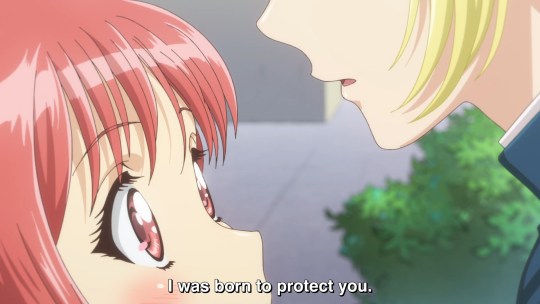
Very simple, Aoyama created this alter ego to protect Ichigo, because he felt hopeless of not being able to help her when she was always there to protect him.
PURPOSE FAILED
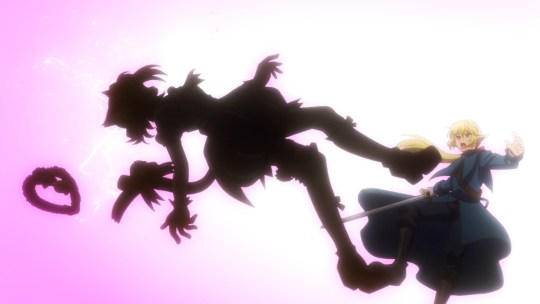
“I know, I know i’ve let you down, I’ve been a fool to myself....I thought that I could live for no one else”
By getting Ichigo severely hurt to the point of blood spilling, being K.O on the floor is whole purpose was gone. HE FAILED

“ So, with sadness in my heart- Feel the best thing I could do Is end it all and leave forever “
Kish was *chef kiss* what a perfect mastermind, he knows Blue Knight is doubting his skills so he makes things worst for him, helping him assert his doubts. If he was stronger Ichigo wouldn’t have gotten hurt., she’s also capable of fighting for herself so why does he even exist?
And yes that was the point of the aliens mind breaking him.
For him to unwilling hurt ichigo so they could manipulate him into doubting himself and awaken deep blue.

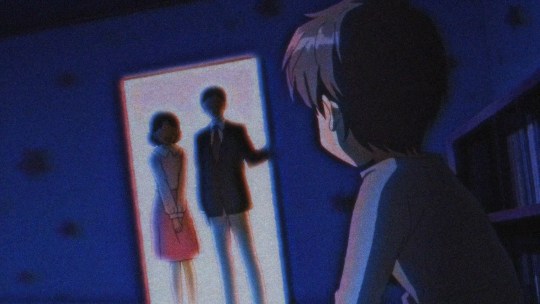
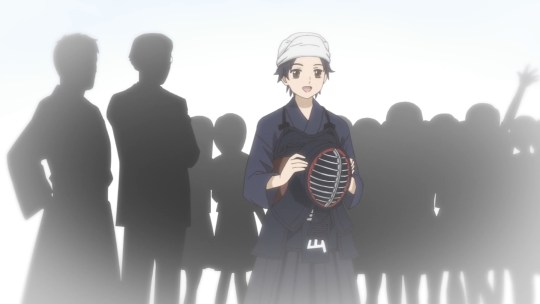
“I know we can't forget the past
You can't forget love and pride
Because of that, it's killing me inside “
Let’s analyze this shots of Aoyama, he’s a single kid in a dark room, probably his own vision of the orphanage because he can’t related to anyone else and lives in his own world. Not even the light coming from the outside is that bright,
His parents and friends face are covered in black, depicting how distant he is with other humans,we can’t relate to any of them.
Slowly has he grows up he starts hating his peers more and more due to his own personal reasons, that is - Destroying the environment.
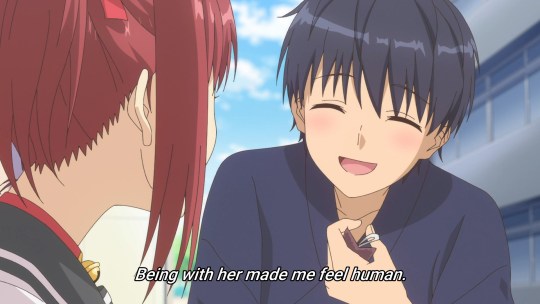
Can't live without the trust from those you love“
Until everything changed, he met Ichigo, who was different, she didn’t use him for her personal goals, she would easily express her emotions something Aoyama would have trouble doing and also cared for the environment and wanted to do something to help protect it..
Let’s put ourselves in his shoes, if we knew one of our loved ones was in a war situation we too would like to help somehow if possible, we too would hope they would be safe and didn’t put their lifes in danger.
Ryou doesn't has this struggles cause he's in the operating room with Kei-kun helping in any way they can, he’s also the leader of the project so he knows the dangers that would come from it.
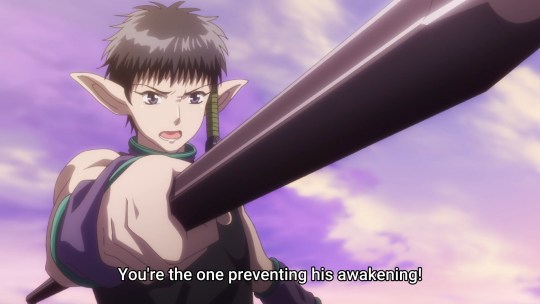

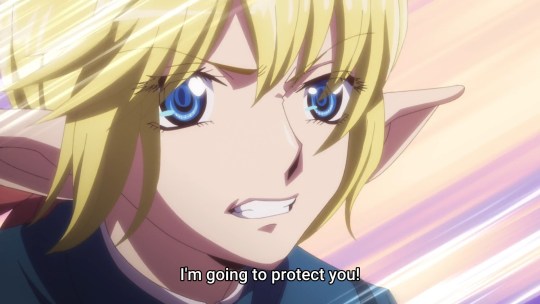
“ I wish that I could turn back time
'Cause now the guilt is all mine “
This thoughts consumed him to the point where he as put her in more danger than he thought it would
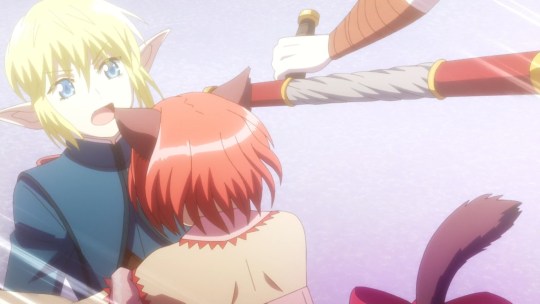

The aliens were self aware of his sense of justice and that he would protect Ichigo at any cost and that in return Ichigo would also try to save him.
And that’s exactly what happened, she got in the way of the attack that was directed to him and took the shot.
This was all perfectly orchestrated by the aliens, they knew how fragile Blue Knight state of mind is/was.
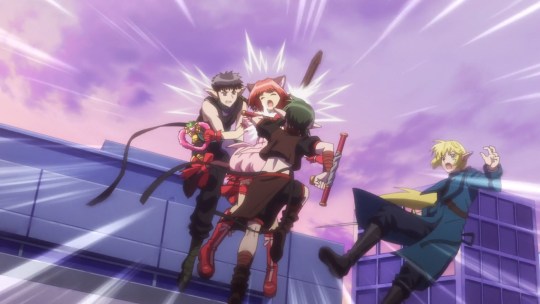
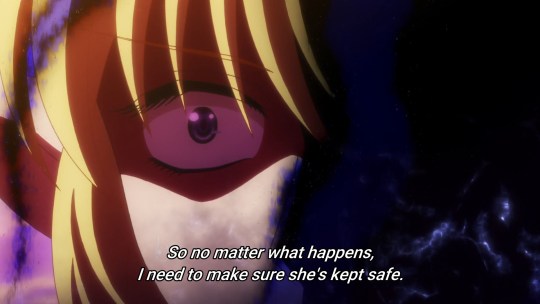
“ What's done is done, it feels so bad
What once was happy now is sad
I'll never love again
My world is ending “
He felt a connection with her, something he never did before with anyone, without noticing she helped him develop as a person. And because of that he vowed in his heart to protect this person who gave him a meaning in life.
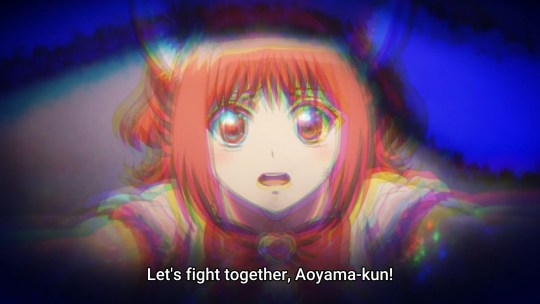

“I just keep letting me down
Letting me down, letting me down “
“ I've lost everything, everything
Everything that matters to me matters in this world “
Self-Sabotage,
He’s too deep in shock and trauma to the point he’s not hearing anything, he only hears the words that he wants or associates with bad feelings which is FIGHTING, Ichigo wants to fight together and to him in that state of mind means Ichigo will get hurt NO MATTER WHAT.
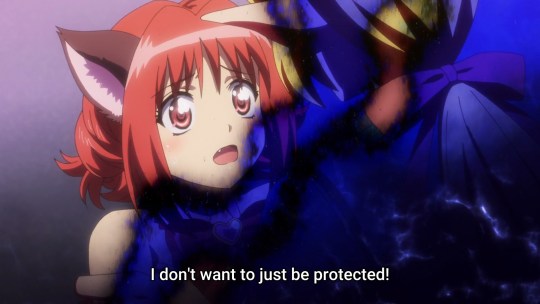
Despite Ichigo shouting out everything will be ok and she’s capable of protecting herself. The fear of loosing her is to big to the point of consuming all his thoughts. and the aliens knew this.
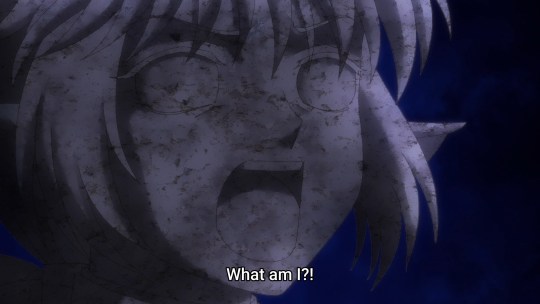

“ It all returns to nothing
It just keeps tumbling down
Tumbling down, tumbling down
It all returns to nothing
I just keep letting me down
Letting me down, letting me down “
The moment he doubts himself and his goal he freezes and the shell breaks
This vessel is no longer necessary, it as completed its purpose and the real person in control can overcome this body.
The vessel in its mind failed its mission, but to the original host it was successful.
“ Tumbling down
Tumbling down
Tumbling down“


#long post#tokyo mew mew#mew mew power#tokyo mew mew new#analysis#blue kni#deep blue#the blue knig#mew ichigo#aoyama masaya#analyis
37 notes
·
View notes
Text
Colonization will always try to separate “human” from “nature” because it depends on people feeling isolated and disconnected. From each other, from the planet, from nature because that makes it easier for the colonizers (The Rich and Powerful) to steal from us (extract resources) if we:
1. Don’t know what they’re stealing from us (connect to the land, your community and globe. Get roots through connection and knowledge and you’ll feel safer taking action)
2. Don’t think we deserve the earth we walk on or the people we love or the things we have (express gratitude, show love. To the self and the earth and others. Pick up trash. Carry extra bus fare and maps to give. Rest when you’re sick, share meals with others)
And
3. Find the enemy in our own and not The Empire (have conversations with others. Not about politics or theory or the weather. Talk about your lives your needs. Your interests and fears. Connect over your nuance and humanity and we can SAVE each other with a network of care)
This type of “environmentalism” stands directly in the way of praxis because it’s an extension of capitalist-colonial thinking. It’s not really environmentalism at all because it’s not interdisciplinary or intersectional. It overlooks the human psychological impact of being told “you don’t deserve to be here”, the trauma that statement passes on and how that trauma creates stagnancy, and animosity between the family unit then the community. Stagnancy and in-fighting creates a political environment where extractivist capitalism can thrive (because it’s easier to steal from a population that doesn’t know you’re stealing from them), isolationist ideals breed fascism and we come to the current global sociopolitical landscape.
It is quiet literally in your best interest, and therefore the collective best interest, to radically and fundamentally care about yourself, because once you know your value you’ll understand the power that The People have. That El Movimiento has. That tenderness and care has.
Because I deserve to be here, happy and cared for and about. So do you. So do we all. Once we understand our place in nature we understand our duty to our selves and fellow human, plant, animal to live together and live well.
I refuse to believe any of us want this. Even the most indoctrinated and disillusioned. This colonial capitalist, greed based system is not “natural” because it’s not sustainable and life always works towards sustaining itself. That’s evolution. We will evolve beyond it because we have to but we don’t have to do it with a massive death toll as we are now.
The time we exist in now is unprecedented but revolution has ALWAYS succeeded in making change, it’s against the spirit of humanity to give up now we can’t afford to believe this shit let alone spread it to our CHILDREN! Children are our future they are hope incarnate why take that power from them? The little bit of power they have under these exploitive institutions. We need to feed that hope and love and care. That’s what sustains us.
If we can put humans on the moon we can find a way to live sustainably. It’s literally our nature. Don’t let them take that from us too.
TDLR: DOOMISM (esp. climate doomism) IS THE DEATH OF PROGRESS CHOOSE TO CARE AND LOVE AND HOPE INSTEAD
the problem i have with the whole "humans and nature as opposed and mutually exclusive forces" style of environmentalism is that it discourages people from a sustainable, mutualistic relationship with the ecosystems around them, because getting resources from an ecosystem is Bad. Therefore it requires you to think that parts of Earth that provide resources are not ecosystems.
this is where you get unbelievably stupid crap like the "half earth" project that proposes "protecting" half of Earth's land mass as nature preserves, never mind how we choose what half or what happens to the other half.
this type of environmentalism literally encourages people to think of their own presence as excluding or cancelling out "Nature."
And so people think of their lawns as Not Ecosystems, as Not Nature, so they cannot think "How do i live in right relationship with my ecosystem, as its caretaker?" This is death to ecological thinking.
The lawn was consciously created by intention and design, with heavy machinery that was manufactured, sold, and operated, it is not spontaneously created by fumes that the human body gives off.
You act upon the land, now time to learn what you are doing, and who you are doing it to.
#rei rambles#sorry for tacking a novel onto your post omg the way you write inspires me so much#solarpunk#hopecore#enviromentalism#thinking so much about children as an oppressed class so had to throw that in too#also I use El Movimiento to talk about collective liberation cuz it feels powerful#like how El Niño and La Niña effect the global climate El Movimiento effects the political one#blood on the page
3K notes
·
View notes
Text
Prodigious
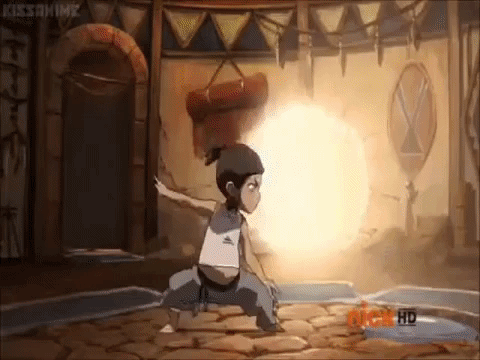

I find it odd how the fandom focuses so much on Aang’s childhood being ruined when he learned he was the Avatar at 12, but there’s very little talk about how discovering she was the Avatar as a toddler affected Korra’s life and how she was raised.
But we’ll circle back to that...
Because this is a good starting point to talk about one of the most prevalent themes in the story, which the mainstream discussion of tends to only focus on a few characters -- That is the Child Prodigy.
We’ll start with the two most obvious. The ones we always talk about.

Azula.

The clearest example of your typical child prodigy (if there is anything typical about a prodigy). Azula showed early mastery of very advanced Fire-Bending techniques, and is the only Fire-Bender to use blue flames, which was intended to make her stand out amongst the other villains but is also indicative that her Fire-Bending is more pure and powerful (blue flame is produced when burning pure O2 or fuel without contaminant at a very high temperature).
All this lead to her being praised and favored by Ozai as a child, but as double-edged swords go, this also meant she had a lot of pressure on her shoulders to never fail, and she rarely did. Her ego matched her talent, and let’s be honest she was the baddest bitch the show had ever seen. Conquering Ba Sing Se, defeating the Avatar in combat, and dropping some of the most devastating lines of dialogue in villain history; she was a force nobody wanted to reckon with.
And that become a problem for one asshole in particular...

Being jealous of his own child is just one item on a laundry list of reasons why this guy is the worst father in the history of fathers. Azula had begun to outshine him with her victories, and Ozai’s maniacal ego couldn’t handle that, so he left her behind to babysit the Fire Nation while he went out to burn/conquer the world, which also was her idea.
And while this wasn’t the only thing that aided in her demise, it certainly was the final straw which sent her spiraling down into this...

In the end Azula is a sad example of how certain unfair expectations are placed upon talented children, and the more they succeed, the more these expectations grow and weigh on the them until they either disappoint those looking down on them or surpass and embarrass their elders.
It is a lose-lose situation which inevitably destroys them.
There is a similar example of the child prodigy, but his story goes a little different.
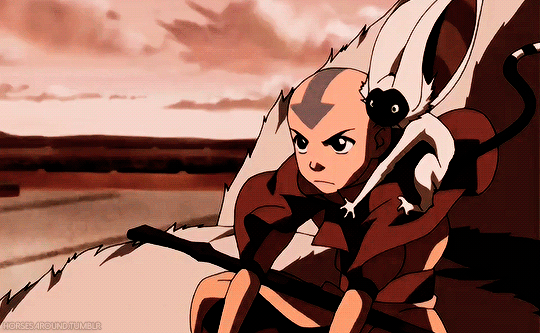
Aang.

Even as a twelve/thirteen year-old boy Aang by far has the most impressive stats among any character in the Avatar universe.
Basically mastering 3 of the 4 Elements in less than a year, after mastering Air by the time he is twelve (not to mention inventing his own Air-bending move, the Air scooter).
Aang is an example of a child prodigy who had too much thrust onto him at too young an age because of the talent he showed; because of this he panicked and ran away, and the world was worse off for it.
Aang/Sokka/Katara’s story is all about how in times of War, responsibilities normally handled by adults are pushed onto kids who then have to grow up very fast in order to deal with it all.
The message is clear. War robs the young of their childhoods.
Now, let’s talk about a different kind of child prodigy.
The Unacknowledged.

Yes, of course I’m talking about Toph, the greatest Earth-Bender to ever live.
Because of her blindness, Toph’s family tried to keep her sheltered and safe by hiding her from the world. Refusing to believe she could ever be more than helpless. Anyone who has seen the show knows that is far from the truth.
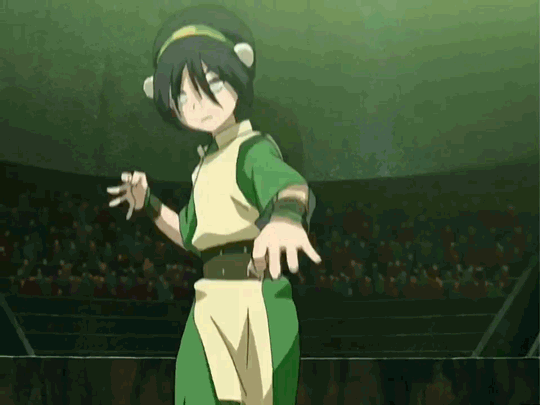
But because her potential went unseen, there were some negative effects to her personality. Initially, she resented her parents, and rebelled; which established a certain level of independence, a bad attitude, and a hot-headed streak. Over time spent with the Gaang these behaviors subsided because she finally had friends and they accepted her for who she was. By the end of the series she was fully willing to accept aid from them when she needed it, like holding on to Sokka’s arm in environment where her bending couldn’t help her “see”.
Toph’s story is a foil to Azula’s, both showed immense talent and badassery, but while recognition of Azula lead to ever-mounting pressure for her to succeed; the lack of recognition for Toph created a need for her to be acknowledged and set an undercurrent of frustration which leads to her acting out in the ways she does.
The lesson to take from Toph’s story is not to shelter your kid from the world out of fear for their safety, and to be open to recognizing their talents, not shun them.
Next are two more Unacknowledged.
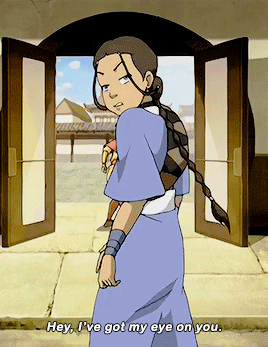
Katara and Sokka.

Their story, and the reason behind their circumstances, is one of the more complicated and nuanced ones in the series, so here we’ll focus on how it fits into the subject of discussion.
Because of the War, Katara was robbed not only of her mother but also of any Southern Masters to train her, and any role models Sokka could have looked up to left with his father to fight. Because of this Katara’s potential and Sokka’s genius went unacknowledged not due to neglect but rather due to circumstance. (Yes, I think Sokka is a genius, how many 15 yr olds do you know that can plan an invasion, design submarines, and spit poetry off the cuff?).
This is a further example of how War robs kids of necessary childhood experiences, and these two robberies had particular effects on both Katara and Sokka’s character developments.
Sokka had the responsibility of protecting his home put upon him at a young age. The men of his tribe leaving prevented him from completing his rite of manhood until the Gaang ran into Bato of the Water Tribe, and early on Sokka was constantly trying to prove himself as a man and a leader. Sokka is one of the smarter characters of the series, but he rarely got credit for it until the third season. Not to mention that because he wasn’t a bender he often seemed less useful than the others. The circumstances of war made his talent go unnoticed and because of that he often was unsure of himself and overcompensated to prove something.
Speaking of talent going unnoticed.

Katara is definitely one of the more talented benders of the series. After training herself for years with little progress, she essentially mastered Water-Bending in a few weeks under Master Pakku. While her anger towards the Fire-Nation mostly centers around the loss of her mother, it can’t be ignored that the delay in her training was a direct result of the Fire-Nations’ actions. Toph’s anger and frustration vented itself as rebellion. However, the same frustration and anger is within Katara, but because she wasn’t as natural a bender as Toph she sought to learn and be respected, and when that was denied to her is when that anger bubbled to the surface in some terrifying ways.
While Toph’s talent went unnoticed because of her families neglect, Katara and Sokka’s wasn’t acknowledged because there was nobody to acknowledge it. Because of that both brother and sister wanted to prove themselves to the world.
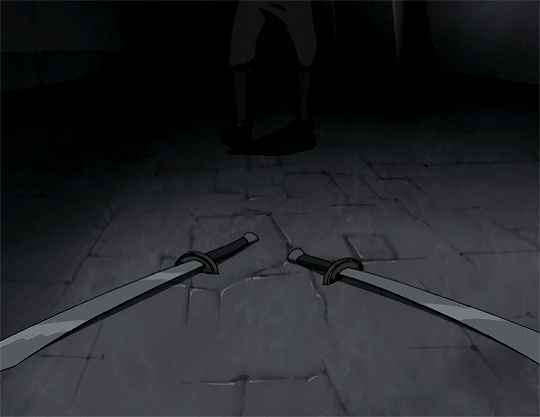
And then there is Zuko.
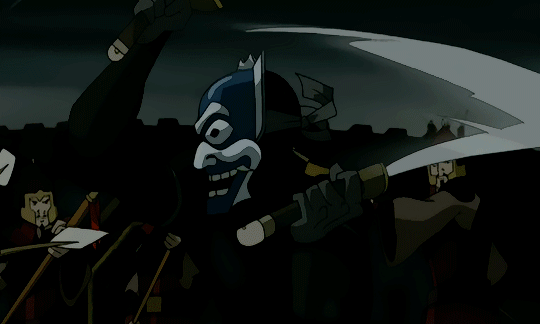
I know what you’re thinking. Zuko wasn’t a prodigy, his Fire-Bending skill didn’t catch up with Azula’s until the finale and he never mastered Lightning-Bending, but this section is about the Unacknowledged.
Zuko had many other talents besides Fire-Bending, he was a master swordsmen, and was able to successfully break into every secure facility he attempted in the show (which was almost every secure facility the show featured). Unfortunately, these talents were never recognized, because the only thing the royal family cared about was bending ability (It’s possible the reason he learned the sword was because he lacked skill in Fire-Bending).
As per usual with Zuko, this part of his tale is quite sad. Many can relate to being outshined by a sibling, and when it becomes all too clear that one cannot match another’s talent it’s quite understandable to focus on what they do excel at, but even then there is no promise of recognition for their own talent. Zuko was even mocked by his father during the solar eclipse when Ozai tried baiting him into attacking with his swords.
This lack of recognition is one of many sad aspects of Zuko’s early life, but it is a definitive example of one of the hardest unacknowledged prodigy’s cross to bear. The Outshone prodigy, one whose talents are never noticed because a bigger and brighter star stands in the way of such recognition, and arguably the most frustrating type mentioned here. Toph/Sokka/Katara all came from situations were there was no recognition being given to them or anyone, but Zuko had to bear watching massive amounts of praise be piled on to his sister while he and his accomplishments went by the way side.
Ozai summed up the situation best.

“Azula was born lucky, Zuko was lucky to be born”

Alright now where have I been going with all this?
So, far we’ve covered a lot of wrong ways to treat a child, whether they show talent or not, and how the circumstances of war can also take many things from children.
But what happened to Korra?
(Before we get into to this I should state that I like Korra, and the purpose of this is not to bash her as a character or her arc, but rather to give a little of my insight into it.)
It’s well established that Aang was told of his heritage too young, and that was a detriment on his development into an adult, but what would have happened if he realized his powers himself not long after he could walk? We’ll never know, but we do get to see the effects it had on Korra.
When she revealed herself as the Avatar, Korra set her entire life in a new direction, and because Aang tasked the White Lotus with finding and training her that direction was out of her control. There are two key differences between Korras’ and other Avatars’ lives.
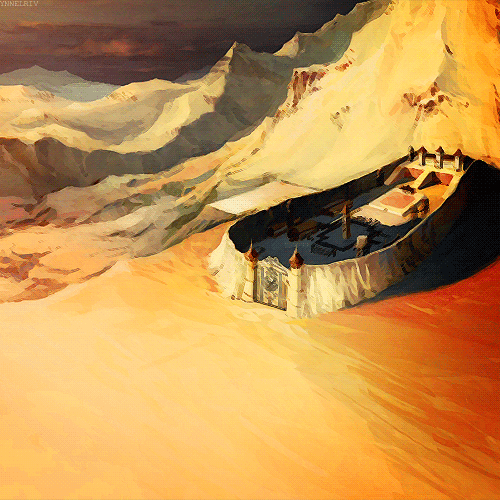
1. She grew up in isolation on a White Lotus compound.
Every Avatar before Korra we know of spent a portion of their early lives traveling the world in order to master the elements; along this journey they not only learned how to bend the other 3 elements, buy also many things about the 3 other nations and the world they are tasked to protect as a whole. By confining Korra in safety and bringing the masters to her the White Lotus deprived Korra of this opportunity to learn and grow and understand the world and the people within in. It also deprived her of learning modern bending styles until she reached Republic City.

While this might have kept Korra safe from the Red Lotus, it grew within her a naiveté about how the world worked, and because of this when she actually did venture out into the world she was terribly unprepared for it.
2. She was trained and mastered 3 of the elements by the time she was 16.
Most Avatars don’t know they have this power until they reach 16 and then they spend several years learning to control it. Korra’s natural talent in the bending lead to her training being expedited not by necessity like Aang’s, but due to her talent and eagerness. Korra excelled at the physical part of being the Avatar and because of this by the time she reached maturity she had become over-confident in her abilities and true to what her Fire-Bending master said in Ep.1 she lacked restraint.
I’m not saying her bending isn’t great, but rather because it is so great it’s her go-to solution to anything, and she enjoys that so she uses it with enthusiastic gusto and not a lot of thinking before striking.
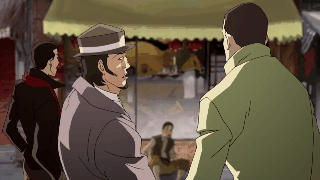
This overconfidence coupled with her naiveté of the world is what lead to many of her rash decisions and actions, most of which had negative consequences, and I believe are the reason behind some fan are dissatisfied with her. Aang had been almost the complete opposite, even by the age of twelve he was an experienced world traveler and an incredibly humble guy.
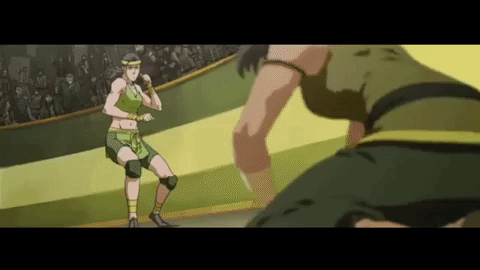
Some may have been dissatisfied by these character decisions, but they served a purpose, they are only the beginning of her arc. The internal challenge Korra must overcome through 4 seasons is to humble herself before the world, and learn from it. This was finally achieved in the 4th season when the metal poisoning in her body forces her to face others in the world as equals, only then had she completed her journey.
And why did it all go this way?
Because she is a very unique child prodigy, what she demonstrates in the first episode of LOK would be akin to a toddler playing the violin or hitting a three-pointer; she could bend 3 elements close to just after learning to walk. That is the kind of prodigious talent rarely seen because it is mostly impossible. How does a rational person handle a child like that?
It’s a tough question, and something this essay has been circling around the whole time. Each example here is the wrong way to handle talented and different children, but what is the right way?
As always look to Iroh.
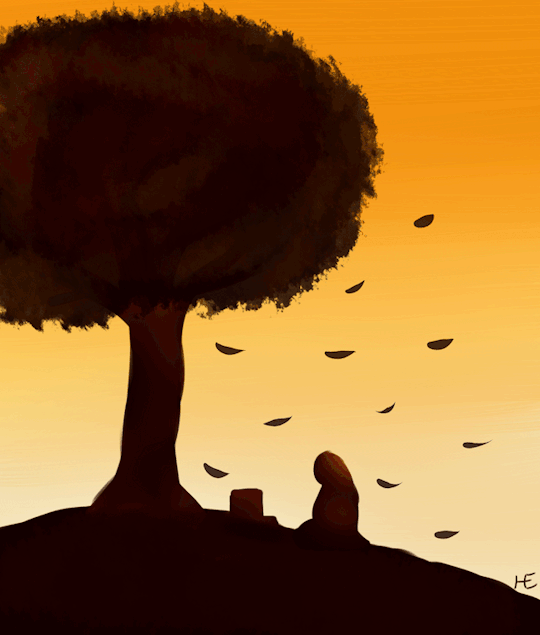
Who treated his surrogate son Zuko with both respect and compassion.

Unlike Toph’s parents, Iroh worried over Zuko’s well being, but also allowed him to be independent, make his own decisions, and take his own risks.
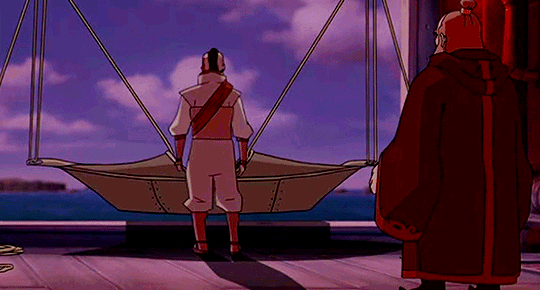
Unlike the Nomad Leaders, he didn’t want Zuko weighed down by his position in the world and the responsibility that came with, and always encouraged him relax and take advantage of the moment.

Unlike Ozai, Iroh would always be there to support Zuko in his victories and his failures. Iroh shows him the right path but does not force him down it.
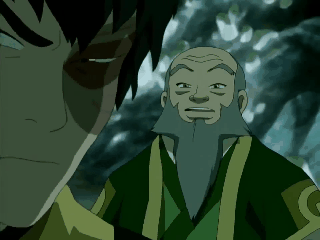
And even after Zuko betrayed and abandoned him.

Iroh was never angry with him, and embraced him upon his return.
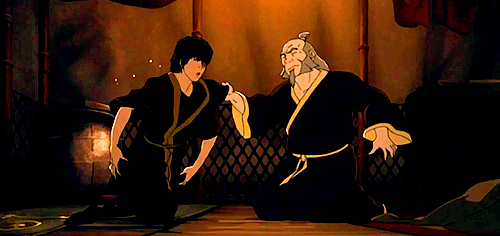
He wanted Zuko to grow and be a better man. Even if Zuko wasn’t a prodigy like his sister.
And that is the answer here. The way to raise a prodigy is the same way anyone should raise any child. Love, Support, a Guiding Hand rather than a Forceful Shove, Recognition of What Makes Them Unique, and Forgiveness When They Falter. The problem comes along when you start treating children differently because you see them as different or special. All children are different, all children are special.
Kids are kids, and they all deserve a proper childhood.
#lok#legend of korra#atla#Avatar The Last Airbender#korra#avatar korra#avatar aang#aang#toph#atla toph#katara#sokka#azula#the gaang#zuko#firelord zuko#poor zuko#atlazuko#fire lord ozai#phoenix king ozai#ozai#blue spirit#prodigy#white lotus#red lotus#waterbending#firebending#earthbending#airbending#appa
24K notes
·
View notes
Text
Tactics of narcissistic abuse
Love Bombing & Mirroring are tactics to gain your favour. These will come from a narcissist you’re just getting to know and they’re trying to convince you they’re your perfect partner, soulmate, best friend, ideal lover. Love bombing is showering you with over-the-top affection and support, they’re likely to see what works best on you, then give you just that. They’ll convince you that you’re special and make you feel special, whether it’s with attention, gifts, promises, love phrases, or making you look and feel very good in front of other people. If they can spin this as fate or destiny, they will. You have one lucky coincidence? It’s destiny that you met. They’ll create the image of ‘it’s us against the world’ and convince you that they’re all you need to never be alone, unappreciated or unhappy again. They will say phrases like 'We were born to be together’ or 'You’re the only one who understands’ and make you feel like you’re in a romance film. Mirroring is the way to convince you that they are just like you, your perfect match. They do this by pretending they want the same things as you. All of your opinions will be shared, your desires will be their desires too, however you want to live, that’s now their ideal life too. If you want children, so do they, if you want to live in a cottage, so do they.
These will be repeated until you feel like you finally got something perfect from life, you commit to them and trust them completely. You will become lenient with your boundaries and disregard minor red flags, because hey, you finally found love, or someone like yourself who makes your life better. These are crucial to keep you around for a long time; the illusion of happiness and perfect companionship you always wanted will keep you holding onto them in hope that things could once again, be this perfect for you. You will not want to let go of them even after the love bombing and mirroring is long gone. Love bombing and mirroring are not indicative of how they’re planning to treat you once you’re committed to them; as soon as they feel you are ready to fight for a life with them, roles will change and you will have to endure escalating abuse from this person, endlessly.
Scapegoats and people badly damaged by trauma will often not get the full love bombing or mirroring, narcissists will be able to win our devotion by acts of basic decency, small thoughtfulness and acting tolerant of our trauma symptoms, this will feel like everything to us, and once we decide this is a good, special person who makes us feel safe and we’d do anything for them, they’ll turn and exploit us endlessly.
Only way to spot this on time is: there will be a little voice of suspicion in your head going ’Isn’t this actually a little too perfect to be real? A little too convenient and ideal?’ and you will not want to listen to that voice. You should listen to it. It’s your instinct, trying to tell you something is off. I won’t blame you if you don’t. Most people won’t just walk away from their ideal partner because things seem 'too perfect’. But, get suspicious at least. Alert to red flags.
Enablers and Flying Monkeys
Narcissists can’t abuse if they’re on their own; they will work hard to build a reputation and charm people who they can later use for purposes of enabling, triangulating, controlling, scapegoating and smear campaigns. Enablers, or Flying Monkeys, are people who are either admiring the narcissists, want to be in narcissists good favour, are trauma bond and scared of the narcissists, are emotionally manipulated or simply too cowardly to point out that the narcissists is wrong and cruel. Most people will fall under the influence and want to be on narcissists side because it’s easier, tempting, feels safer, and doesn’t require much thinking. Narcissist will sometimes emotionally manipulate people to go do their dirty work; they will cry about how they miss their runaway children so flying monkeys would harass and judge children for running away, they will invent stories of abuse and insanity of their spouse so people would shame and judge the spouse who the narcissist is abusing. They create environment in which they can keep abusing and other people will jump to defend, justify, victim-blame and further confuse the victim. “They had a hard life”, “They’re your mother/father/uncle, you have to forgive them” or “He’s not that bad” are the phrases you’ll hear from enablers and flying monkeys. The term “Flying Monkey” is taken from the Wizard of Oz, because the Wicked Witch owned an army of brainless flying monkeys who would do her bidding – much how narcissists do with their enablers.
What enablers are doing is absolutely wrong. They should not be ready to defend abuse, or excuse and justify it, or believe and act on smear campaigns, not for any reason. They are hurting and isolating the victim, and regardless of how much they suck up to the narcissist, they will eventually become the targets too. Victims are right to cut out enablers just how they’re right to cut out abusers. You do not have to suffer for their cowardice or stupidity.
Triangulation is a form of abuse where narcissist brings another person into the relationship in order to bypass your boundary. For instance, you refuse to speak to the narcissist, so they send your family members, friends, or their friends, to talk to you about how much you’re hurting the narcissist and how cruel and unfair you’re being. Or, you’re trying to set a boundary in your marriage, and suddenly a friend or a relative comes talking to you about how unreasonable it is to set such awful boundary and to think of your spouse’s feelings and how bad they have it. Narcissist may try to use you for triangulation too, for example, they might tell you 'Go tell your sister she should do xyz and she’s making a mistake, she’ll listen to you’. It’s implied you agree with the narcissist, and that both of you are doing it for the sister’s good, when it’s more likely the narcissist is trying to force this person to do something they’re deeply set against and would only serve the narcissist. Narcissists will use their children to triangulate a marriage, they will often 'gang up’ other family members on their spouse, or one of the children. If you’re the victim, you’ll find yourself cornered, isolated, and in doubt whether you’re doing the right thing, trying to establish a boundary. Narcissists will also often show affection, compassion or even love to a third person simply to make you jealous and worried that something is wrong with you since you don’t get the same treatment. It’s what creates an illusion that the entire world is agreeing with the narcissist and no matter what you do, you look unreasonable for fighting them.
Narcissists will sometimes invent completely boogus scenarios and try to terrify people into doing their bidding and believing they’re right. As if the world will fall if narcissists don’t get what they want.
Society at large will often enable abusers; you can call out abuse and be rendered a 'killjoy’ because people prefer to enjoy cruelty together with the narcissist than to oppose them. Narcissists are capable of rousing a whole gang of people to turn against the victim and to aid in their abuse; this is scapegoating.
Gaslighting is a form of abuse where the abuser attacks your sense of reality. They will usually do this to obscure and deny acts of abuse. “I never said that” “That didn’t happen” “That’s not how I remember it” “You imagined it” or “You’re crazy, I would never do that!” are common gaslighting phrases abusers use for events that absolutely happened, and they absolutely remember. It’s even more powerful if they get other people to agree that you’re insane for remembering a past event of abuse. They can sometimes try to convince you that something didn’t occur while it’s still happening. This renders your intention of calling out abuse impossible; you’re now debating whether the event even happened and your sanity is questioned.
The point of this is to drive you into insanity; prolonged gaslighting will make you doubt your own memories and senses, and you will no longer be secure in your own point of view or version of reality. You will not be able to fight abuse, because you will get stuck on wondering if it’s even real, or if you’re making it up. Narcissist wants not only to abuse you, but to control your perception of it, reaction of it, and to disable you from telling anyone and being taken seriously. Smear campaign and gaslighting ensures that everyone thinks you’re lying to make problems, even you.
You can attempt to block gaslighting with phrases like 'That was not my experience’ 'I know the truth and I am not debating it with you’ ’ Don’t tell me what happened, I was there’ or ridiculing them for thinking it would work, but sometimes abuse will escalate if you refuse to play along, so be very careful with them.
Baiting, Projection and Scapegoating
Baiting is the way narcissist finds out which triggers will work on you. Types of baits are: Scaremongering, Accusations, False Claims, Guilt-tripping, Victim-playing, False Hope, or Intrigue. They will use these to elicit either fear&anxiety, or guilt&responsibility. You are likely to get pulled in and respond emotionally to these, and thus the narcissist will discover which one of these is most triggering and they can use it to either control you, or to affirm that they can still get you riled up, scared, guilty – they feed on being able to provoke these, it makes them feel powerful. They can later use the same trigger to push you into guilt and fear if you try to resist their control. If they continue doing this to you for a long time, you are likely to develop self-doubt and anxiety about your own persona. Way to counter this is to grey rock them.
Projection is a primitive defense-mechanism, where a person feels uncomfortable with their behaviour or thinking, so they accuse someone else of it to deflect the bad feelings from themselves. This can feel the same as baiting, but narcissists do it without realizing they’re giving you the information about what they’re actually feeling and doing. For instance, a narcissist will accuse you of being self-absorbed after they start feeling uncomfortable with how self-absorbed they are, they will start to call you selfish when it comes to their mind how selfish they are. They will accuse you of the exact shit they’ve been doing whether it’s lying, manipulating, faking for attention, cheating, exploiting, lacking compassion, stealing. These claims will feel like they’re coming out of nowhere at first, but eventually you will wonder if you’re really like that, and accept their projection on yourself, believing to really be as bad, or worse than they are. Even though they’ve done 100% of these things, while you have done none of it. This can also be countered by being aware what is going on and grey-rocking them. Deflecting the blame back to them will not work because they’ll either deflect it back, or throw a tantrum and insult you.
Scapegoating is the most vicious abuse narcissist can inflict on their victims and is designed to completely break a person’s spirit while creating power out of terror. Scapegoating doesn’t only serve to terrify and control the victim; it shows everyone what the narcissist is capable of, causing them to go very far to avoid becoming the next scapegoat. This creates enablers, flying monkeys and other benefits for narcissist to enjoy, while the scapegoat is isolated, not believed, and often shunned by the community to show loyalty to the narcissist.
Scapegoat will be blamed for every narcissists flaw, accused of provocation and creating trouble, shamed for their likes and interests, humiliated for their appearance or needs, their work will be rendered worthless and any pain and injury will be treated as if the scapegoat deserved it, or wanted it. Nothing is out of bounds to criticize or belittle in the scapegoat; flying monkeys will do it too, to either affirm themselves with the narcissist, or because they too crave power by stepping on someone defenseless. If a narcissistic parent decides to scapegoat a child, the other parent might stop caring for the child, and agree that the child deserves only to be neglected and shunned. The illusion narcissists create, of entire society agreeing that a person is irredeemable, deserving only of pain and ridicule, has turned people to suicide.
Scapegoat absorbs all of the narcissist’s malice, cruelty, sadism, baiting, projection, guilt and tantrums, so other people in the environment can get some relief and can use the scapegoat as their shield. You can be chosen to be a scapegoat for challenging the narcissist and standing up to them, for refusing to scapegoat someone else, for seeing thru them and showing any potential for undermining their authority, if narcissist is jealous of you, if narcissist feels threatened by your intellect, compassion and emotional depth they lack. And often, you’ll just be chosen because they’re in position of power and you’re unprotected. If you’re their child, a lonely classmate, employee with no high reputation or lots of friends, a minority, different in the way of sexuality or behaviour, anything that is easily used to sway a group of people against you. Narcissists will make sure to spread a smear campaign filled with lies against you, so that nobody would align with you, or believe you if you try to counter their word.
This type of treatment is beyond anything a human being could deserve, and devastating for the victim’s self esteem and sense of reality. After surviving a scapegoating situation, people might not want to find themselves in any social setting anymore. They might start believing themselves to be unlovable and defective. There is usually no way to counter it or fight your way out, unless there’s a higher authority who could side with you, or there’s a way to physically remove yourself from this environment.
Grey Rock, Hoovering and No Contact
Grey rock is a way to counter baiting and projection; narcissists learn and thrive on our emotional responses, it gives them a thrill to be able to send us into rage, terror, disbelief, shock or panic. Grey rocking means you give zero emotional response, and thus prove yourself very boring and a bad source of narcissistic supply. So, regardless of what egregious threat, accusation, claim or insult they make, you just reply with 'mhmm’ and look completely disinterested. You reply with one-word sentences, say 'sure’ or 'yup’ if they accuse you of something or try to fearmonger, answer questions with 'maybe’ or 'I don’t know’, agree with whatever bs they’re pulling out of their ass without caring, refuse to get pulled in or baited, give them no significance in the conversation until they leave. It is very hard to do, because they will up their game and even fly into rage to get a response, if they feel entitled to it. In some cases they might resort to violence. Often, they’ll keep changing the tactics until something works, and if nothing does, they’ll feel dejected and go find another source of supply. If they feel like they can’t get to you, this undermines their imagined power over you.
No contact is the only way to truly win against a narcissist; if they can’t reach you, they can’t manipulate or hurt you. This means no responding to messages, no letting them know where you live, blocking them on every service, and in most situations, even the enablers have to be no contact, because the narcissist is likely to send them into triangulation and use them to get to you. If you’re unable to go no-contact with a narcissist, a lot of people opt for 'low contact’, which means you only hear from them once a year, or once every 6 months, insufficient for them to gain control over you, and you grey-rock them all the way, and never share any personal info that might be used against you. Hoovering is something a narcissist will do to you after you’ve left them. They might leave you alone for a long time, then suddenly send a message saying they miss you, or they’re thinking about you and wishing you could do xyz together. They might also influence another person to tell you 'x misses you, they wish to see you again, they’re doing bad without you’. This is done to remind you of the 'good times’ and an attempt to draw you back in, as you’re supposed to have forgotten all the abuse already and be ready to take them back. It might come as outrageous expectation or denial of everything bad that happened – that’s because it is. All you have to do is grey-rock this, not respond, and enjoy in knowledge that even if you can’t ensure revenge, you can take yourself away from them, and they will never have you back.
Sources: Baiting, Scapegoating, LoveBombing, Gaslighting(video), Projection(video), Triangulation, Mirroring(video), FlyingMonkeys (video), Hoovering, Grey Rock
#narcissistic abuse#scapegoating#psychological abuse#narcissistic parents#emotional abuse#gaslighting#love bombing#mirroring#baiting#projection#triangulation#flying monkeys#enablers#this took 3 days to write wow#did you notice tumblr beta has a character limit???#i had to turn it off to be able to post this#i don't want a character limit on tumblr#let people read
2K notes
·
View notes
Text
Deconstructing Harry: The boy we meet in Philosopher's Stone to the man in Deathly Hallows
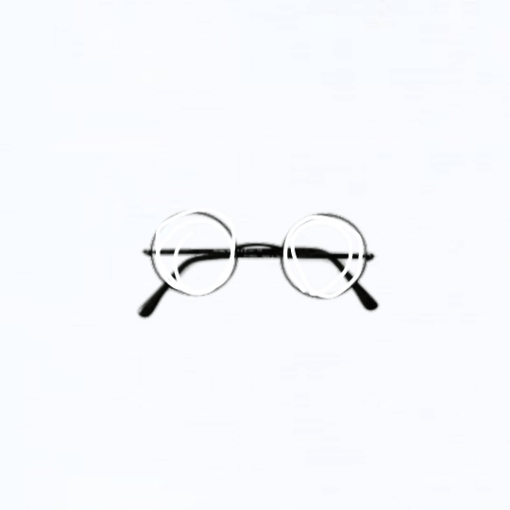
I have often seen fans talk about how nebulous Harry is as a character, especially in the earlier books. They can't make sense of who he is as a character and other more colourful, more actualized personalities take over our attention from any traits Harry might display. Harry becomes more defined for a lot of people OOTP onwards where he displays traits that sometimes make him unbearable or unlikable.
Harry, as we are introduced in PS, has a very little sense of self. He is narratively self deprecating or plays down his presence or skills, not that he is aware he has any. He grew up without any presence of him displayed in the house - no photos, no idea about his parents or what they look like or what really happened to them and discouraged from asking questions. Harry as we meet him is neglected, rootless about his identity and longs for escape. For him, every day is a battle against Dudley, who bullies him or Vernon, thus setting a worldview that never truly goes away: him vs adults. But just because Harry doesn't attach traits or values to self, does not mean he does not have it.

It's an effective narrative tool though - for Harry to be our eyes of the world. Only in later re-readings can we get a grasp of the traits that become more pronounced as books go on. Also, it's not surprising that Harry develops a better sense of self when he is removed from an abusive home.
Let me begin with this:
1. Harry is a fighter
One of the things that struck me in later re-readings is that how much of a fighter Harry is, from the very beginning. He will not lie down and take abuse. The narrative presents it as no big deal, because Harry doesn't assign any importance to it - it's every day life for him.
-Verbal standing up-
See his reaction to Uncle Vernon and the letter fiasco. He stands up for himself, even if it falls on deaf ears. "I want my letter - as it is mine!". Later on, in the same book, a completely befuddled 11 year old Harry stands up to Snape too, but in a politer way: "I think Hermione knows the answer. Why don't you try her?". He gets less polite with Snape as books go on. Harry's humor is something he employs liberally with Dudley when standing up to him - "The poor toilet's never had anything as horrible as your head down it - it might be sick" and we see this trait manifest into the sass we all know and love.
- Fight or flight-
He is remarkably good at "fighting himself out of tight corners" as Snape put it. And although Snape attributes it to luck and more talented friends, he is onto something about Harry's ability to worm out of tight corners. He lives moment to moment in a dangerous situation - relying on his nerve, very fast reflexes and athleticism. He is also able to notice things in an environment that will get him out of a quick pinch. You see this clearly in Department of Mysteries in Book 5 where he comes up with the idea to smash shelves, the mad idea to escape on a dragon, the ministry escape where he manipulates Runcorn's image (as he noticed how people were reacting to him) to create chaos and get the Muggleborns and the trio out, Chamber of Secrets when he instinctively understood the diary is the source of power and stabbed it.
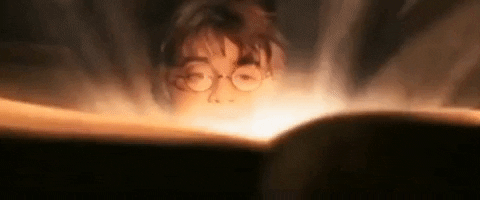
Where does the athleticism and ability to spot dangerous situation come from? This boy has spent a decade cheeking Dudley and running away from his gang, spotting when he needs to get out of the way as "long experience had told him to be out of Uncle Vernon's arms reach" or "ducking when Aunt Petunia aimed a frying pan at his head". The instinct to see a dangerous situation develops over the course of the books in his adventures - to the point Harry unconsciously brings out his wand in Tottenham road without thinking too much about it. He is almost always wary and less quick to lower his wand.
When hiding/ escaping is not an option, Harry is not above physical fighting - despite how small and skinny he is in Book 1. Both he and Dudley fight for a chance to listen at the door when letter first arrives for Harry. Dudley wins the fight. Later on, Harry jumps Uncle Vernon from behind and hangs on to his neck to get his letter. He even does the same thing to the troll in the same book. ( Then over the course of series, we see him beat up Sirius in Book 3, Malfoy in Book 5, strangle Mundungus in Book 6 - all of these are related to his fury over the dead, so different context. But still).
- Manipulation/ Cunning-
11 year old Harry even tries sneakily - waking up early to get his letter (unfortunately didn't work). The other sneaky methods he has employed throughout the series is - not telling Dursleys at end of PS that he is not allowed magic at home, threatens Dudley with it in COS, not telling them Sirius is innocent to play up the threat of a murderous godfather to keep them accountable, and also the smooth way he negotiates with Uncle Vernon for Hogsmeade letter. ("Well it will be hard work, pretending to aunt Marge that I go to St Whatsits" ,"Knocking the stuffing out of me won't make Aunt Marge forget what I could tell her"). He similarly displays his negotiation and playing to what he knows about people with Slughorn in Book 6, Pettigrew in Book 7.
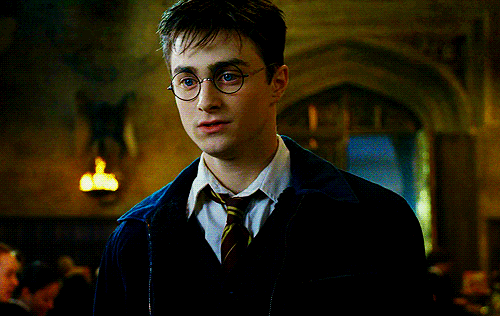
The scene with Slughorn is disturbing, with Harry coercing a drunk Slughorn to give up his memory. You can argue that this is the influence of Felix Felicis, but I think the potion acted more as facilitation. The disturbing way Harry brings up his mother's murder to unnerve Slughorn is his own doing. ("Voldemort stepped over my father's body towards mum" "I forgot - you liked her, didn't you?"). Again, in a life threatening situation, Harry plays to Pettigrew's latent guilt: "You are going to kill me? After I saved your life? You owe me Wormtail!"
2. Relational justice over abstract justice
Harry's concept of justice is relational and based on his high empathy for the underdog. He notices power dynamic in a situation and empathises with the victim. This is in contrast to Hermione, who has more abstract, bigger picture view of justice. It's no wonder that Hermione is the one who is the most political of the three.
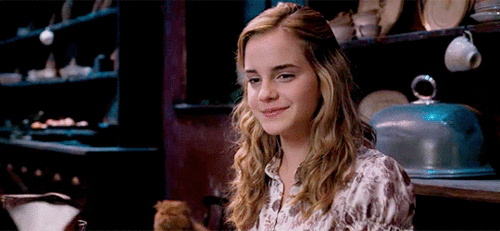
His high empathy for the underdog and needing to stand up for them is because he feels responsiblility that no one should go through what he went through. He stands up for Neville in PS and encourages him to stand up for himself. When he sees his father bullying Snape, it is not about an abstract "this is wrong behavior". Harry goes further: "Harry knew what it felt like to be taunted among a circle of onlookers" , Harry focuses on young Snape's mismatched clothes because he himself knows what it's like to wear clothes that are not yours or ones that make you look ridiculous. His empathy extends to Voldemort too - understanding why he may not want to go back to his orphanage and desire to be in Hogwarts, wondering why Merope wouldn't stay alive for her son, his fixation with Voldemort's maimed soul in King's Cross chapter and later asking Voldemort to feel remorse (" I have seen what you will become otherwise"). Even his reaction to Dobby in COS - "Can't anyone help you? Can't I?" when Dobby talks about his slavery. Hermione is usually seeing the bigger picture, Harry sees the individual.
3. Pathological mistrust of adults
He is less likely of the trio to take an adult at their words or be assured by them when they say they are taking care of things. He has learnt, from a very young age, that he is always expected to take care of himself. And the times he does take things to adult, they consistently disappoint him - by patronising him or acting like he is a child, neither of which he has tolerance for or appreciates. This is why he takes to Sirius and Lupin, who exhibit neither of these communication patterns. In some ways, Mr Weasley too.
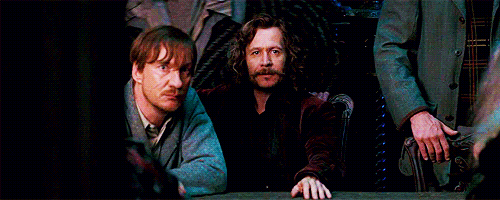
Umbridge's abuse of him for him is framed as a battle of wills between her and him, as if he is an equal. And he loses if he complains - "not giving her a satisfaction of knowing she got to me". Harry's worldview has always been - adult vs him.
His inability to trust adults even extends to the ability of adults he likes to look after themselves. While Sirius is understandably a wreck in OOTP, he has by and large followed Dumbledore's orders. This doesn't register with Harry (Ron points it out: "Sirius listens to Dumbledore even though he doesn't like what he hears") and Harry's fears about Sirius, excaberated by Sirius's tendency for recklessness, comes to play.
He even showed similar distrust in Lupin's judgement in taking a potion from Snape in POA ("Harry felt the urge to knock the goblet out of Lupin's hands" and tries to hint at Lupin that Snape will "do anything" for DADA job). And he shows this once again with the most magically powerful wizard he knows - Dumbledore. ("if I tell you to abandon me and save yourself, you must do so". Dumbledore has to insist on this before Harry nods reluctantly. It's also Dumbledore's wording, but this is a wizard Harry feels safe with almost entirely because of his power - and yet Harry cannot obey an order like this without reluctance). It's not about Harry's own ability to take care of them - he just innately cannot leave people to it.
4. Humor as a value and coping mechanism
Harry has an established coping mechanism by the time we are introduced to him - quip in the face of danger/ dark humor. There are repeated instances of Harry amusing himself with snarky comments in his head when things are really bad for him. Like in PS, when they are in the hut, Harry wonders if the roof will fall in and then thought that if it did fall in, he might be warmer. In the earlier books (before his growth), he seems to value Ron over Hermione simply because he is more "fun". Harry enjoys being around funny people like Ron, Weasley twins, later Ginny simply because there is some dark stuff happening with him and he needs "fun" people for semblance of normalcy, escape. In fact, this desire is so strong, he attaches it to his romantic relationships: Ginny is a "blissful oblivion" and times with her are "something out of someone else's life". His relationship with Cho failed because her coping mechanism is discussing her trauma and Harry's is escaping it.
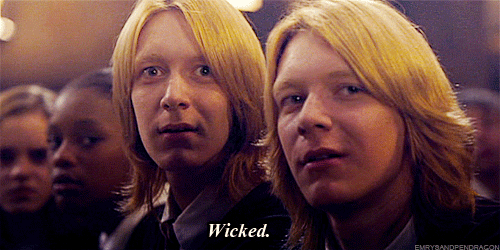
-dealing with conflict with people he likes, small digression-
A part of his growing up in later books includes valuing Hermione as much he values Ron and we see it in display in HBP, where he is more willing to stand up for her to Ron (something he kind of did more quietly before in POA - "can't you give her a break?" ) and also get confrontational with her instead of using Ron as a buffer between them to fend off her more boisterous/ bossy tendencies. ("let him make up his mind" "skip the lecture" "don't nag" - Ron took the heat in earlier books. In HBP, Harry is more willing to be irritable with her in a day-to-day interaction - "I hope you enjoy yourself" he tells Hermione when she states her intention to investigate Half Blood Prince. Or when she tests the book - "Finished? Or do you want to see if it does backflips?" "Do you have rub it in Hermione, how do you think I feel now?" at the end of HBP. ) In OOTP, his best method to deal with her when she bothers him was lying, avoiding her nagging and if that doesn't work, explode and treat her to display of his temper. There is more to explore here, of course - even with regard to how he deals with Mrs Weasley in Book 4, 5 and the difference of him hugging her in Book 7.
5. Fascination with the dead/ a passive death wish
Harry feels remarkably little sense of betrayal knowing that he was set up to die by Dumbledore. His self sacrificing streak is rooted in his love, yes, but I also think Harry is a little bit too fascinated by death, not surprising considering most people he loved are dead. Him wanting the resurrection stone in DH, him obsessively spending time at Mirror of Erised (to the point he feels feverish and Ron thinking he looks strange) until Dumbledore stops him, him almost wanting to fail to learn a Patronus because he wants to hear his parents voice, the hearing of whispering voices in the Veil in OOTP which only Luna could hear apart from him, the scene at the grave where he almost wishes he was "lying under the snow" with his parents, the possession scene in the book of OOTP has him wishing to die so he can be with Sirius. You can almost argue the Harry has, in many moments, shown raw desire of death. In fact, him choosing to let go of the stone and not go looking for it is a big character decision for him.
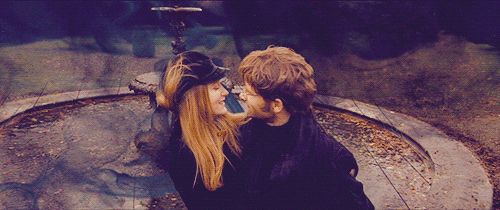
I also want to address Harry's temper and how that develops over course of series, the implications of understanding the people he loved and put on pedestal are flawed - but I am afraid this post is already way too long. So I will leave that for some time later.
#harry james potter#harry potter#harry potter character analysis#hp meta#Vernon Dursley#dudley Dursley#hermione granger#ginny weasley#ron weasley#sirius black#remus lupin#albus Dumbledore#lily and james potter#weasley twins#how Dursleys abuse molded Harry#all of Harry's heroic traits are trauma responses#Severus snape#in this house we stan harry james potter#philosopher's stone#chamber of secrets#order of phoenix#deathly hallows#tw:abuse and neglect#hp character analysis#harry potter meta
1K notes
·
View notes
Text
Why thank you! But also, Absolutely! I think a better question is “how do you make cultures unique,” because no matter what you do fiction will emulate reality. Plus it’s pretty darn hard to create a completely unique culture.
I totally agree! Plus I think where a lot of those cultures work is by changing their priority and their traditions. Also I love Game of Thrones, House of Dragons, and the SOIAF series, but I haven’t finished either the books or the shows so I won’t talk about them. But as I’ve read some I have to say that I love Dorne for their unique culture (especially when you imagine Westeros is just the UK).
But I do know Dune, (movies and books alike) and what I love about Herbert’s writing of the Fremen (and even members of the Padishah Empire) is the unique addition of traditions and their focuses! While absolutely I would say the main cultural inspiration of the Fremen is the Bedouin tribes of modern day Arabia (one could also argue a little Amazigh and maybe even Turkish) there is a distinct focus on geography, which informs the culture of the Fremen, as well as the resources that they have around them.
The use of Science Fiction “magic” we get the stillsuits which trap the body’s wasted water and distills it back into clean drinkable water (albeit I assume it doesn’t taste the best). Not only did the Fremen help/outright create this technology but it dates back to their fear of wasting water. Not a drop of water should be spilt, and how precious water becomes as a resource (which of course has its origins in Bedouin culture, however due to the setting and its technology does it become an actual core tenement of the society).
Another resource that becomes equally important to their culture is the Spice Melange, a psychedelic drug which enhances certain peoples innate foresight abilities. It is not only the main export and cash cow the Fremen have, but it is also inherently tied to their religion, their environment, their food, but their culture itself. They are tethered to their geography and the resources around them, so much so that they do anything to protect each element.
I don’t know if any of this makes sense but I think rather that just having “the Roman culture,” make sure that elements from your world effect and shape those cultures (such as IRL ones are effected). How does geography, resources, religion, other cultures, magic, foodstuffs, and more effect that said culture?
I didn’t get to talk about this on the Carinaens but rather than being a peninsula it is in the middle of a vast grassland used by nomads for centuries prior and centuries afterwards. It’s an agricultural breadbasket like Egypt (at least in Antiquity) or Ukraine (contemporary). How does that affect the culture of the Carinaens? Honestly I’m not sure yet! But I can’t wait to figure it out.
No judgment or anything to anyone who plops in other worldly cultures, I do it all the time! But how do we make them unique and how can we represent real cultures in real worlds that just might not exist off the page just yet?
Also please do your research, just as you said lol, please be respectful of irl peoples.
How do you keep from Copy/Pasting existing Cultures into your Worlds?
Basically just as the title says, and I'm sure there's been pleeeeenty of discussion on the topic, but I'm genuinely curious what makes your cultures unique and original (especially when the modern aura of writing is "everything's been done"). Furthermore, is having a copy/paste culture a bad thing? For context, I'm primarily a Game Master (GM) who also on occasion writes as well as works in the TTRPG actualplay space. When you have an audience (whether friends or fans) is it necessarily a bad thing to have familiar locations, themes, and even characters that mimic real life? Can it be easier for an audience to just assume we're in "Ancient Rome" or "Habsburg controlled Austria"?
For me I do like creating totally original locations with their own weird political systems influenced by magic, gods, monsters, and anything else fantastical--BUT sometimes I find a setting is more interesting of just "what if Romans could directly interact with their deities?". For me I just find the idea of almost "alternate history" but in my uniquely fantastical setting interesting. However, I also understand that some people like genuinely different worlds with no trace of the real world left behind.
When creating unique cultures I try to combine elements to create something more unique. For example I'm currently working on the ancient periods of my current homebrew world, and specifically in a portion I haven't particularly worked on before. In Evrosea, a sort of "ancients world" where Greco-Roman culture lives on well into the medieval 15th Century (of course technology has changed and evolved) I find myself studying more ancient histories. I knew from before I fully began working on worldbuilding Erosea that there was some sort of "Roman Empire" which spread its tongue as a sort of lingua franca across the continent of Dulgren (aka why Common exists in my D&D world). Also originating from the region of Evrosea was the sorta monolithic pantheon of "new gods" (aka Catholicism). So I have the ideas of imperialism and religious importance in this region. So the very clear start was Rome itself, but how could I make this Rome unique? Well here's what I found from my research on Ancient Rome:
Many pre-settlers, and even contemporaries of Ancient Rome, in Italy were nomadic grazers and herders.
The Aeneid, which tells one of the many origin stories of Ancient Rome, ties in the ancient Greek tale of the Trojan War, and makes Rome the successors of Troy.
That many of their religious practices were tied up with the Senate (especially after the abolishment of the crown).
Finally, while perhaps never directly ruled by the Etruscans, their neighbors were much more confederate like and were similar in culture rather than being a unified people or kingdom.
Taking the information I found I twisted and jumbled much of this random history and constructed a group of nomads who controlled the fertile valleys of Uvemos (home region of the ancient Carinaens, my replacement for the Romans).
Many of these nomads worshipped similar sounding gods (if not outright the same gods), and most of them lived off the lands of Uvemos. Only a select few of whom ever settled into cities. However, long after the first nomads of Uvemos walked the hilly countryside arrived a band of pirates and raiders, terrors of the ancient world, many knew not their names, but they quickly accrued a nickname, "The Sea People" (see Sea Peoples on Wikipedia for more, TL;DR a bunch of random marauders who attacked or even helped cause the collapse of some Bronze Age Civilizations). One such pirate was said to be the Prince Laogonus, an exile from Apeiros, who was said to be a direct descendant of the God King Ulios himself. Laogonus settled down on the banks of Janian Sea in a small dirt settlement near to the roaming tribes of Uvemos. Many years later the small city of Carina was established as a blossoming trade hub by the many different tribes of Uvemians. Of these tribes was born a Chieftain's daughter, Aurora. Aurora was said to be descended from the god blood of Ulios, and when she prayed to her great grandsire on the eve of battle she was enveloped in holy light-- thus becoming the world's first cleric. Of her legacy were many rituals formed and practices established, and the civitas mille clericorum* was born.
*(civitas mille clericorum) meaning "city of a thousand clerics," named after the heavy religious undertones established by the first cleric Aurora, at least according to legend.
Super cool right?? I combined some other ideas than the ones I established such as the Sea People from the Collapse of the Bronze Age, as well as these kind of Shinto-like-beliefs in the Carinaen religion, which, to me at least, seems the most like what Ancient Roman beliefs would look like to us today (though I didn't really get to talk about in my blurb). I like taking existing pillars of cultures and extending them, now rather than just being a complete Roman rip-off there's more of this nomadic or tribal culture, at least to early Carinaen history, there's more of a nautical legacy (unlike Rome, who didn't establish a truly working navy up until the Punic Wars), and finally the city of Carina is a beacon for holy warriors and classes like Paladins and Clerics (again this is D&D so that's oriented towards that).
But tell me what you think, and how best do you come up with your fictional cultures/countries? Do you merely copy off of pre-existing cultures or do you fully work from the ground up? I'm super curious to hear what you all have to say!
I'm also tagging a couple friends since I'm curious of your responses @hessdalen-globe, @northernthiefcranberry, @kerghoulen, and the ever wonderful @somethingclevermahogony.
Also guys I need you to pull me out, I'm this close to dropping out of the arts and trying to get into Harvard to do Ancient Studies. Send Help.
22 notes
·
View notes
Text
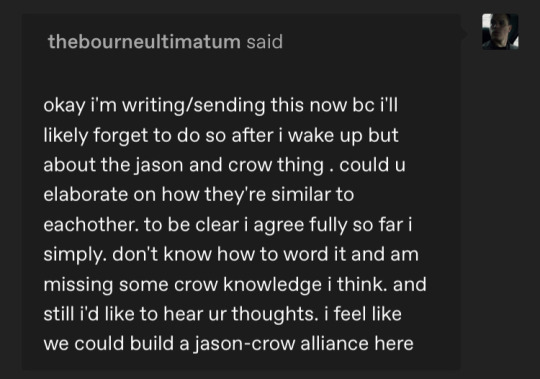
@thebourneultimatum OK for some reason, Tumblr won’t let me edit the original ask so I’m doing it like this instead. I got deleted while answering this ask yesterday so maybe it’s connected. Maybe staff really hates Jason Bourne. Or they’re messing with me on Crow’s birthday 😔
Jason Bourne Crow Armitage similarities because we are being so normal on tumblr dot com
Warning for discussion of abuse
Let’s start with @vonkarma2 ‘s revolutionary checklist:

Jason and Crow’s narrative arcs both focus on identity and personhood. They both have their identities destroyed and rebuilt to fit a manipulative organisation’s ideals. Jason feels a big disorientation and struggles to piece together the events of his life and what things make up his ‘real’ identity. Crow ‘willingly’ gave up his old identity and is very aware of his decision at all times.
Crow is actually a rank and not a name. His first name is Lewis, but he’s become so tied to his role as a Knight of the Order of Crows that he almost entirely sheds his old name. Other people began calling him Crow in day to day conversation then over time he accepted it for himself. He’s become so tied up in what he is that he’s forgotten who he is. He’s so detached from the world that Lewis came from that he’s a completely different person in almost every way.
There’s also a lot of conflicting feelings for him wrt his name because while Lewis is his birth name, it reminds him of his mother and that’s very upsetting because he loved her dearly and feels like he betrayed her (<- this is more complicated than that. i won’t talk about it here), and the only people who use it for him in modern day are abusive. But Crow as a name isn’t a ‘real’ name. It was given to him because people couldn’t be bothered to call him anything else. It’s like Soldier or Captain or Officer. Very formal, no personalisation. He isn’t anything outside of the rank.
Also, it’s an animal name. He’s the only character (besides Hollyhock and Baize <- it’s different with her I won’t talk about it here) that doesn’t have a ‘person name’. In the text, he’s consistently likened to different animals. Specifically domestic or prey animals. I know Jason gets related to a dog in the films and I think he has a similar situation where his relationship to different names and identities get complicated and each moniker ends up kind of like their own compartmentalised person.
It’s almost the same situation as this post you made:
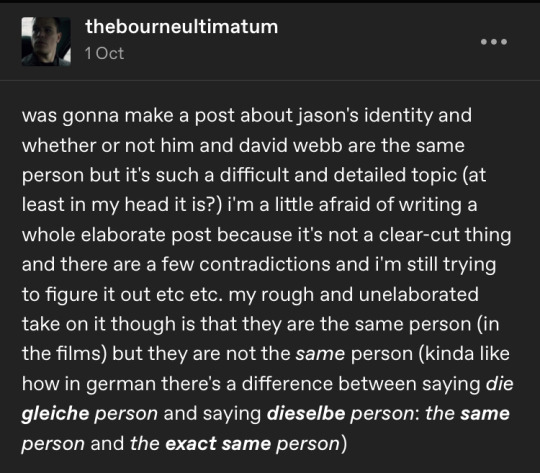
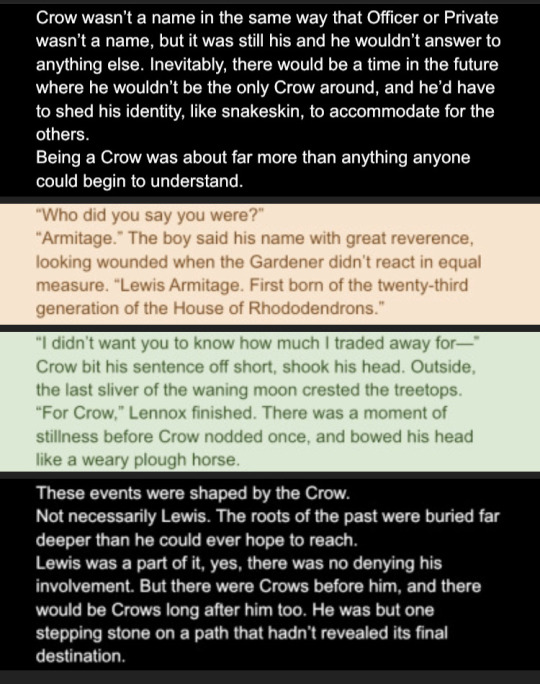
+ some animal metaphors i found quickly
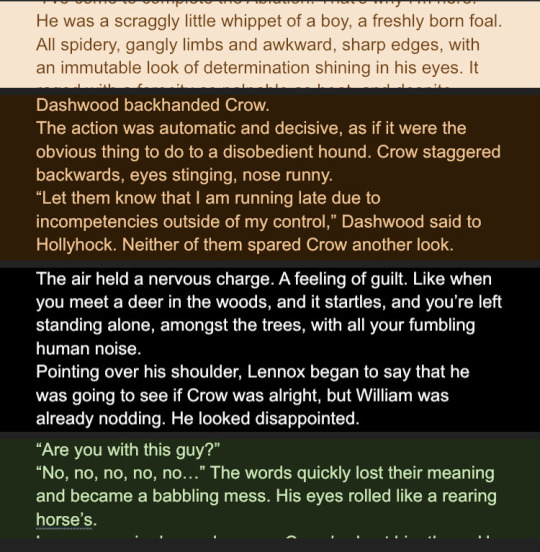
So I’ve still only seen the first film. I’m sorry. So tell me if I’m getting this wrong. Jason is dehumanised and treated like a living weapon by Treadstone. They use him for their own gain, while fearing what he’s truly capable of. They have lethal contingency measures in place, in case he turns on them, or deserts. Treadstone created everything that Jason Bourne is, then realised they’d done too good of a job. It’s all very Crow.

Idk how much you know about him so sorry if I’m covering old ground here but Crow was raised in an environment that places humanity on an impossibly high pedestal. There’s a whole political history about this that I won’t go into here. Crow is a werewolf. But the differences between the two species are so slight, it’s almost negligible, aside from the obvious. Crow’s job is to kill other werewolves to ‘protect’ humans. Again there’s political and social history around this that I won’t go into. There’s guidlines and procedure. Think like K from BR2049 being a replicant that kills other replicants, so is ostracised from both humans and replicants. That’s Crow’s situation. He can’t find comfort from either humans or werewolves, because both groups despise and fear him. He’s a very isolated, lonely man which made him vulnerable to manipulation.
An irl of mine said that it’s as if he never fully woke from the Dream and everyone around can tell there’s parts of him that got left behind and that unnerves them like uncanny valley style. They can automatically tell something isn’t quite right. I wanted to hit her with a tire iron
From a young age, Crow was groomed to believe that he was specifically chosen by a werewolf deity because of his heritage. One of his ancestors was leader of a prestigious cavalry rank called the Order of Crows in the fifteenth century, so Crow is excited to follow in his footsteps. He’s led to believe its his prophesied destiny to take up his great-great-whatever-grandfather’s mantle. It isn’t. He’s being actively manipulated by a man called Harry Dashwood. Dashwood uses Crow as a political pawn to get ahead and become sworn in as the Prime Gardener <- the highest political/theocratic rank a werewolf can hold. He has his own agenda that Crow isn’t privy to.
Over time, Crow recognises that he’s being kept in the dark and wants to find a way out somehow, but there’s no real way he can leave without putting himself in serious danger. A lot of people want him dead (and rightfully so most of the time. he is a serial killer) and he’d never be safe without the Sanctum’s protection. Like with Jason and the CIA, the Sanctum itself would become overtly hostile towards him and organise their own ways of recapturing or killing him if he went rogue
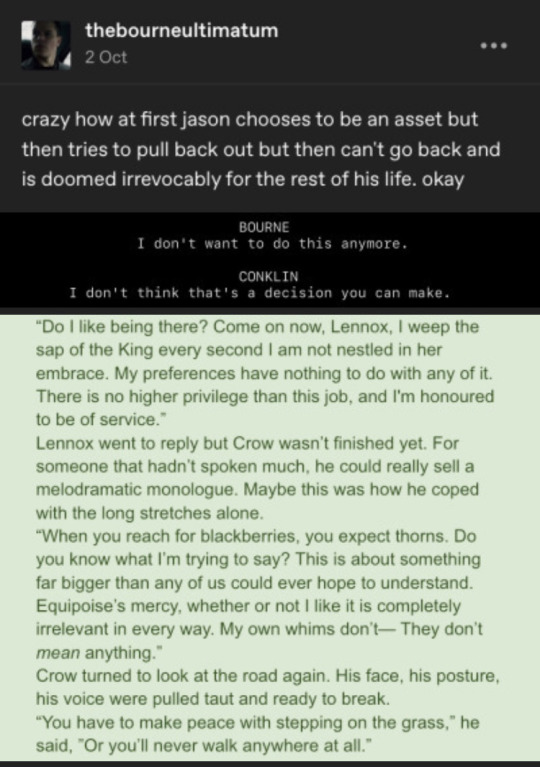
When Crow becomes uncomfortable or feels threatened, he talks in metaphor to distance himself from the real situation. He gets stressed and falls back into different scripts or parrots things he’s been told in the past. He says what he thinks people want to hear rather than what he actually wants to. Crow’s go-to exclamation is ‘Equipoise’s mercy’ and the only other character that says that is Dashwood.
This got very muddled at the end. I could say a lot, lot more but I think it would be completely illegible. Whatever. Does any of this make sense? I just wanted to post and get it over with.
To conclude:
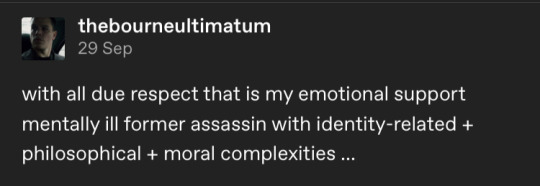
#oc stuff#noril tag#answers#<- treating this like its an ask#this feels pretentious sorry if it seems pretentious#also this feels overly morbid and miserable he does get happier he does improve
18 notes
·
View notes
Text

Love.
How difficult it is for us to find, and maintain the love that we all yearn for. Perhaps, a big part of the problem is that we misdefine love…
No other one subject has been more analyzed, talked about, and experienced by every single person on this planet - than love, and yet we really have no clue what it is.
You cannot make a person happy; you can make a person smile, you can make a person feel good, you can make a person laugh, but whether or not a person is happy - is deeply and totally, and utterly out of your control.
The thing that we call love… the thing that we are searching for and we’re trying to create; that we call love. Is actually not love.
The concept of the Desire x Pleasure paradigm – that we think about love in terms of desire and pleasure… meaning that if you meet my needs - then I love you. If you don’t - then I don’t [love you], so that love becomes transactional… if you do what I want, if you meet my desire and give me pleasure, I love you. If you don’t meet my desire and you don’t give me pleasure, I don’t love you. That in the insatiable nature of desire, trying to get somebody to fill our cup - leads to anger, and frustration, and ultimately it makes us break apart from people.
The real paradigm for love is Gardener x Flower: The relationship that a gardener has with a flower is; the gardener wants the flower to be what the flower is designed to be, not what the gardener wants the flower to be… you want the flower to bloom, and to blossom, and to become what it wants to be, you want it to become what God designed it to be, you’re not demanding that it become what you need it to be, for your ego - anything other than all of your gifts, wide open; giving, and nourishing this flower into their greatness… is not love.
L.U.V. – Listen [to], Understand and Validate - what you hear, as true.
Listening is a magnificent superpower; really deep listening… we can’t listen if we’ve got something that we want to say. Listening is a connective energy; learning how to quiet your own mind, and quiet your own thoughts, and quiet your own needs and desires, and listen to what the other person is saying.
Understand… truly understand what the person is saying to you - there is nothing that feels better to a human being, than to feel understood. The mission is to thoroughly and completely understand what the person is saying.
Validate - the things that you recognize as true, in what they say; validate them as true - “yes, I get it. I understand that, I see that”. Validation is a huge part of creating a loving environment with a person.
*** *** *** *** *** *** *** *** *** *** *** *** ***
At its core - LOVE is HELP. Everybody is having a hard time.
… Life is abusive...
Love is really - devotion to their struggle - it’s where you are committed to helping somebody with their life; helping them to suffer less, helping them to manage their minds and their emotions. Love is a deep desire for our loved ones' growth, their blossoming, and their all around well-being. When you love somebody you want them to feel good, you want them to be happy, and you want to see them succeed in life. Love really demands an in-depth understanding of their hopes, their dreams, their fears, their needs, and trauma. I think love is giving, and sharing our gifts for the purpose of nurturing them, and empowering them, and helping them to create their greatest joys.
9 notes
·
View notes
Text
Clone genetic enhancement ideas
So the clones were genetically enhanced, but i don’t really see any writers (in fanfic or in published stuff) really exploring what that MEANS beyond “clone very stronk”. Here are some ideas that would actually make clones significantly different from just a regular-ass human in peak condition.
-enhanced senses: eyesight, hearing, etc. I’m talking eyes like a HAWK
-better reflexes
-quicker information processing
-can hear sounds of higher and lower frequency than standard humans
-can see light of a broader spectrum than human standard
-learn quicker, retain information and skills better (potential problem: if you learn something the WRONG way, that way might stick really well)
-photographic memory (really useful for memorizing layouts and maps)
-immunity to various diseases
-can tolerate a wider range of temperatures and environments
-increased stamina and strength baseline. Clones can just run full-tilt for hours and hours and be like “ah a nice stroll”. Over long distances, they can out-pace jedi in the same way that humans can out-pace horses.
-higher tolerance of certain poisons/toxins (clones can straight-up drink ethanol, and get maybe a little tipsy)
-bodies respond quickly to physical stress, and slowly to the absence of it (basically, this means that physical conditioning results in stronger muscles and a stronger cardiovascular system really quickly, and it takes MUCH longer for a clone to lose strength and conditioning due to not exercising than standard humans. Think how much valuable training time is saved if they only have to go on a run like, once a month in order to stay in shape)
-increased ability to function through intense pain and acute injuries. Basically, semi-disabling the pain system so it’s less distracting. Probably not good for the survival of the individual in many situations, but an advantage on the battlefield.
-heal faster and better, with fewer long-term complications. Clones can dislocate their shoulders and NOT have the joint be permanently fucked up, because the Kaminoans re-designed the whole damn thing to suck WAY less.
-actually, unique internal anatomy. There’s probably a lot about the human body besides the shoulder joint that is actually just really stupid, and something no intelligent designer would actually build. So the Kaminoans can fix a lot of that stuff. Better knees, maybe. Stronger ribs. Maybe Cody punches droids not just because he’s a mad bastard, but also because his metatarsals are literally as strong as steel.
-Hearing loss/hearing damage? No problem, your ear can regrow those little hair-thingies that help you hear.
-Of course, it takes energy to maintain muscle mass, which is why human bodies lose it if we’re not using it. Clones need significantly more calories than standard humans. However, their digestive systems are enhanced to extract calories and nutrients from food much more efficiently, so food goes much farther. Potential weird side effect: maybe clones only have to poop like, once a week?
-You could probably extend that into increased ability to tolerate long periods without food/on low rations, despite the increased need for calories.
-wouldn’t it be NEAT if the kaminoans somehow designed self-repairing DNA. This would mean that others couldn’t take a DNA sample from a clone and modify it to create their own clones (basically, it protects their product. It’s like DRM for clones). This ALSO means that clones couldn’t get cancer, and that they’d be immune to radiation poisoning. So a clone could just walk up to a sphere of uranium at critical mass and pick it up. Maybe with oven mitts on if it’s hot. (this would also make it harder for a rapid-aging cure to be developed, but uhhhh fanfic writers find a way)
- “bred for obedience” I think most of this would have to be accomplished through tightly-controlled messaging and cultural norms as the clones grow up- basically, enshrining obedience as a desirable and almost sacred trait, to be prized higher than anything else, including the lives of your brothers. In the same way that we hear stories of people sacrificing their lives to protect their loved ones, the clones would grow up hearing stories of soldiers sacrificing their brothers’ lives to obey an order from a superior.
-SOME of the “obedience” thing could be engineered, though. Humans are already super social, but it would probably make sense for the clones to have an even greater need for social bonds. This would make for greater teamwork and coordination, and better unit cohesion, since the clones would be more inclined to prioritize friendship/agreeing with someone over winning an argument. It would also make it so they’d bond with their natural-born generals more easily, so they would obey them not just because they’re supposed to, but because they’d be much quicker to see them as a friend, and someone who’s trust they want to earn, someone they want to incorporate into their group and make happy.
-consequently, clones who find themselves alone do NOT do well. Isolation has a much more profoundly negative impact on clones than on regular humans.
-Originally, clones designed to operate alone or in small teams would not have the social enhancement- ARC troopers, spec-ops teams, etc. There wouldn’t be much of a noticeable difference in everyday interactions, but they’d also be vaguely weirded out by what they interpret as aggressive friendliness from their brothers, and their brothers would think they’re a bit shy and standoffish.
-actually this social modification would make it MUCH harder for clones to kill people. REGULAR HUMANS are already super bad at killing people- i remember reading this article about how as soon as soldiers have to point their weapons at actual people, their aim gets mysteriously much shittier. Even when compared to situations that are exactly the same, except they’re not shooting at other humans. So reconcile this how you will, idk.
-I imagine a lot of these enhancements would be accomplished not through DNA, but through microorganisms. Retroviruses could explain the DNA resistant to modification, and the increased healing speed, and possibly some disease resistance (do i know anything about retroviruses other than a vague concept of what they are? no i do not. will that stop me? also no.) Their metabolism can be partially explained through specially engineered gut microbes.
-not sure how they’d go about making clones “resistant to any stress”, because you can’t exactly turn off the trauma response in the brain without breaking a bunch of other things. They could probably do a bit of fiddling to make clones more resistant to chemical imbalances, and therefore more depression-resistant. I think most of the “stress-resistance” would have to come through training. Either they train the clones to basically suppress everything, which might work alright in the short term. OR they actually have systems in place that help prevent the development of things like PTSD and help treat trauma. Meaning the clones are literally trained in self-care, positive self-talk, talking about their pain with their brothers, and having community rituals around things like death and grief. I don’t think that’s super likely because one thing that’s integral to those concepts is the concept of “i am a person and i have worth, and if i feel angry about something bad happening, that is ok and valid” and considering that a whole lot of bad things happen to the clones all the time and their childhood is a whole boatload of bad all happening at once, i don’t think the kaminoans would want the clones realizing “hey wait a minute i’m a person and i don’t deserve to be treated this way and it’s ok for me to be mad at you”.
- the clones were supposedly engineered to be “less aggressive” but i think there was literally nothing more to that than a cover story for the control chip. The clones wouldn’t be raised with a lot of the aggressive western concept of masculinity, where anger is the default reaction to like, everything, and your personal pride is extremely important and also fragile (no offense lmao). So you wouldn’t have clones posturing and getting angry over perceived slights and fighting each other all the time, like everyone in-universe apparently expects to be the case. Anyway, why would you want your soldiers to be less aggressive? they’re literally supposed to fight and kill the enemy. You want them fully capable of getting angry, anger is the human response to fear and danger that lets us DO something about it.
-obviously the biggest component in how they behave would be how they are raised, but that’s an entirely different post
-Specializations! I imagine that initially, the Kaminoans had different clones with different traits engineered specifically to fill certain roles. However, as the war went on, they struggled to keep up with demand and had to start shoving clones into whatever roles were needed (hence Fives and Echo becoming ARCs, despite not being engineered as ARC troopers).
-Command clones would have better abilities in the executive function parts of the brain that deal with extrapolation, planning ahead, spatial reasoning, etc. They’d also have increased visual pattern recognition (like a pigeon)
-search-and-rescue troops would also have the pigeon pattern recognition abilities. The coast guard literally strapped pigeons to helicopters who would tap a button when they saw orange in the water, because they were better at spotting it than humans. Pigeons can detect cancer in microscope images of cells, because they’re that good at pattern recognition
-Pilots would have hella reflexes, excellent spatial awareness and spatial reasoning skills, much greater ability to process visual information, stronger hearts and blood vessels (to resist greater Gs of force), and they’d also be much shorter, to better fit into a cockpit. Which reminds me of Axe, that poor bastard from Ahsoka’s squadron over Ryloth who was almost eight feet tall. rip poor Axe, how did you even become a pilot, you long bastard.
-medics who can smell certain diseases. If you want to get a little bit out there, make the medics able to purr so they can sooth stressed-out patients.
-infantry would have even greater endurance than everyone else, as well as greater tolerance for, and ability to, remain constantly on alert.
-ability to fall asleep at will? that would be super dope.
-maybe more efficient sleep, so to an adult clone, 4 hours of sleep is genuinely sufficient.
-concept: clones can sort of turn down their bodily functions- slow their digestion, heart, lungs, the whole nine yards- to last longer in adverse conditions. Sort of a half-hibernation (or quarter hibernation- they’d still be able to talk and think, but they’d feel very lethargic). They wouldn’t be able to function very well, but it would be great for things like enduring intense cold, periods without food, low-oxygen environments, and it would be especially useful if you were wounded and waiting for help, since you could slow your circulation, meaning it would take you a lot longer to bleed out. This state could be triggered by a combination of physical actions such as sitting or lying still, breathing slowly and deeply, and focusing on slowing the heart down (humans can actually slow down their hearts consciously if you practice at it, this is basically that, but turned up to like 1100).
-one thing that never made sense to me was the whole “we’re running out of jango fett’s DNA, all the new clones won’t be as good, and we have to stop ventress from stealing the original DNA” because like, can’t they just, get the EXACT SAME DNA from the clones?? you know, the exact genetic copies? With all the enhancements already done? But now my idea is that the kaminoans have engineered the clones so their DNA straight up can’t be copied. The clone’s own body can obviously replicate it, but if you take a sample and try to extract the DNA, it just self-destructs or something. This is to protect their intellectual property, but also means that they literally have to use a couple of Jango Fett’s actual human cells for every single clone they make (and the fact that they then have to do all the above enhancements to every single embryo helps explain why there’s so many small mutations, such as hair color and height). So they kinda shot themselves in the foot with that one.
-of course since things like ADHD and autism have a strong genetic component, the kaminoans could theoretically engineer those out of the clones, but actually FUCK THAT so for whatever reason, that’s just not something they are able to do, and neurodivergent clones are absolutely a thing
1K notes
·
View notes
Note
These are questions I've had for some while and it's hard to find someone who'll answer with grace. This mostly relates to disabilities (mental or physical) in fiction.
1) What makes a portrayal of a disability that's harming the character in question ableist?
2) Is there a way to write a disabled villain in a way that isn't ableist?
In the circles I've been in, the common conceptions are you can't use a character's disability as a plot point or showcase it being a hindrance in some manner. heaven forbid you make your villain disabled in some capacity, that's a freaking death sentence to a creative's image. I understand historically villains were the only characters given disabilities, but (and this is my personal experience) I've not seen as many disabled villains nowadays, heck, I see more disabled heroes in media nowadays.
Sorry if this comes off as abrasive, I'd really like to be informed for future media consumption and my own creative endeavors.
Okay so the first thing I'm going to say is that while it IS a good idea to talk to disabled people and get their feedback, disabled people are not a monolith and they aren't going to all have the same take on how this goes.
My personal take is biased in favor that I'm a neurodivergent person (ADHD and autism) who has no real experience with physical disabilities, so I won't speak for physically disabled people- heck, I won't even speak for every neurotype. Like I say, people aren't a monolith.
For myself and my own writing of disabled characters, here's a couple of concepts I stick by:
Research is your friend
Think about broad conventions of ableism
Be mindful of cast composition
1. Research is your friend
Yeah this is the thing everybody says, so here's the main bases I try to cover:
What's the story on this character's disability?
Less in terms of 'tragic angst' and more, what kind of condition this is- because a congenital amputee (that is to say, someone who was born without a limb) will have a different relationship to said limb absence than someone who lost their limb years ago to someone who lost their limb yesterday. How did people in their life respond to it, and how did they respond to it? These responses are not "natural" and will not be the same to every person with every worldview. This can also be a great environment to do worldbuilding in! Think about the movie (and the tv series) How To Train Your Dragon. The vikings in that setting don't have access to modern medicine, and they're, well, literally fighting dragons and other vikings. The instance of disability is high, and the medical terminology to talk about said disabilities is fairly lackluster- but in a context where you need every man you possibly can to avoid the winter, the mindset is going to be not necessarily very correct, but egalitarian. You live in a village of twenty people and know a guy who took a nasty blow to the head and hasn't quite been the same ever since? "Traumatic Brain Injury" is probably not going to be on your lips, but you're also probably going to just make whatever peace you need to and figure out how to accommodate Old Byron for his occasional inability to find the right word, stammers and trembles. In this example, there are several relevant pieces of information- what the character's disability is (aphasia), how they got it (brain injury), and the culture and climate around it (every man has to work, and we can't make more men or throw them away very easily, so, how can we make sure this person can work even if we don't know what's wrong with them)
And that dovetails into:
What's the real history, and modern understandings, of this?
This is where "knowing the story" helps a lot. To keep positing our hypothetical viking with a brain injury, I can look into brain injuries, what affects their extent and prognosis, and maybe even beliefs about this from the time period and setting I'm thinking of (because people have had brains, and brain injuries, the entire time!) Sure, if the setting is fantastical, I have wiggle room, but looking at inspirations might give me a guide post.
Having a name for your disorder also lets you look for posts made by specific people who live with the condition talking about their lives. This is super, super important for conditions stereotyped as really scary, like schizophrenia or narcissistic personality disorder. Even if you already know "schizophrenic people are real and normal" it's still a good thing to wake yourself up and connect with others.
2. Think about broad conventions of ableism
It CAN seem very daunting or intimidating to stay ahead of every single possible condition that could affect someone's body and mind and the specific stereotypes to avoid- there's a lot under the vast umbrella of human experience and we're learning more all the time! A good hallmark is, ableism has a few broad tendencies, and when you see those tendencies rear their head, in your own thinking or in accounts you read by others, it's good to put your skeptical glasses on and look closer. Here's a few that I tend to watch out for:
Failing the “heartwarming dog” test
This was a piece of sage wisdom that passed my eyeballs, became accepted as sage wisdom, and my brain magnificently failed to recall where I saw it. Basically, if you could replace your disabled character with a lovable pet who might need a procedure to save them, and it wouldn’t change the plot, that’s something to look into.
Disability activists speak often about infantilization, and this is a big thing of what they mean- a lot of casual ableism considers disabled people as basically belonging to, or being a burden onto, the able-bodied and neurotypical. This doesn’t necessarily even need to have an able neurotypical in the picture- a personal experience I had that was extremely hurtful was at a point in high school, I decided to do some research on autism for a school project. As an autistic teenager looking up resources online, I was very upset to realize that every single resource I accessed at the time presumed it was talking to a neurotypical parent about their helpless autistic child. I was looking for resources to myself, yet made to feel like I was the subject in a conversation.
Likewise, many wheelchair users have relayed the experience of, when they, in their chair, are in an environment accompanied by someone else who isn’t using a chair, strangers would speak to the standing person exclusively, avoiding addressing the chair user.
It’s important to always remind yourself that at no point do disabled people stop being people. Yes, even people who have facial deformities; yes, even people who need help using the bathroom; yes, even people who drool; yes, even people whose conditions impact their ability to communicate, yes, even people with cognitive disabilities. They are people, they deserve dignity, and they are not “a child trapped in a 27-year-old body”- a disabled adult is still an adult. All of the “trying to learn the right rules” in the world won’t save you if you keep an underlying fear of non-normative bodies and minds.
This also has a modest overlap between disability and sexuality in particular. I am an autistic grayromantic ace. Absolutely none of my choices or inclinations about sex are because I’m too naive or innocent or childlike to comprehend the notion- disabled people have as diverse a relationship with sexuality as any other. That underlying fear- as mentioned before- can prevent many people from imagining that, say, a wheelchair user might enjoy sex and have experience with it. Make sure all of your disabled characters have full internal worlds.
Poor sickly little Tiffany and the Red Right Hand
A big part of fictional ableism is that it separates the disabled into two categories. Anybody who’s used TVTropes would recognize the latter term I used here. But to keep it brief:
Poor, sickly little Tiffany is cute. Vulnerable. How her disability affects her life is that it constantly creates a pall of suffering that she lives beneath. After all, having a non-normative mind or body must be an endless cavalcade of suffering and tragedy, right? People who are disabled clearly spend their every waking moment affected by, and upset, that they aren’t normal!
The answer is... No, actually. Cut the sad violin; even people who have chronic pain who are literally experiencing pain a lot more than the rest of us are still fully capable of living complex lives and being happy. If nothing else, it would be literally boring to feel nothing but awful, and people with major depression or other problems still, also, have complicated experiences. And yes, some of it’s not great. You don’t have to present every disability as disingenuously a joy to have. But make a point that they own these things. It is a very different feeling to have a concerned father looking through the window at his angel-faced daughter rocking sadly in her wheelchair while she stares longingly out the window, compared to a character waking up at midnight because they have to go do something and frustratedly hauling their body out of their bed into their chair to get going.
Poor Sickly Little Tiffany (PSLT, if you will) virtually always are young, and they virtually always are bound to the problems listed under ‘failing the heartwarming dog’ test. Yes, disabled kids exist, but the point I’m making here is that in the duality of the most widely accepted disabled characters, PSLT embodies the nadir of the Victim, who is so pure, so saintly, so gracious, that it can only be a cruel quirk of fate that she’s suffering. After all, it’s not as if disabled people have the same dignity that any neurotypical and able-bodied person has, where they can be an asshole and still expect other people to not seriously attack their quality of life- it’s a “service” for the neurotypical and able-bodied to “humor” them.
(this is a bad way to think. Either human lives matter or they don’t. There is no “wretched half-experience” here- if you wouldn’t bodily grab and yank around a person standing on their own feet, you have no business grabbing another person’s wheelchair)
On the opposite end- and relevant to your question- is the Red Right Hand. The Red Right Hand does not have PSLT’s innocence or “purity”- is the opposite extreme. The Red Right Hand is virtually always visually deformed, and framed as threatening for their visual deformity. To pick on a movie I like a fair amount, think about how in Captain America: The Winter Soldier, the title character is described- “Strong. Fast. Had a metal arm.” That’s a subtle example, but, think about how that metal arm is menacing. Sure, it’s a high tech weapon in a superhero genre- but who has the metal arm? The Winter Soldier, who is, while a tormented figure that ultimately becomes more heroic- scary. Aggressive. Out for blood.
The man who walks at midnight with a Red Right Hand is a signal to us that his character is foul because of the twisting of his body. A good person, we are led to believe, would not be so- or a good person would be ashamed of their deformity and work to hide it. The Red Right Hand is not merely “an evil disabled person”- they are a disabled person whose disability is depicted as symptomatic of their evil, twisted nature, and when you pair this trope with PSLT, it sends a message: “stay in your place, disabled people. Be sad, be consumable, and let us push you around and decide what to do with you. If you get uppity, if you have ideas, if you stand up to us, then the thing that made you a helpless little victim will suddenly make you a horrible monster, and justify us handling you with inhumanity.”
As someone who is a BIG fan of eldritch horror and many forms of unsettling “wrongness” it is extremely important to watch out for the Red Right Hand. Be careful how you talk about Villainous Disability- there is no connection between disability and morality. People will be good, bad, or simply just people entirely separate from their status of ability or disability. It’s just as ableist to depict every disabled person as an innocent good soul as it is to exclusively deal in grim and ghastly monsters.
Don’t justify disabilities and don’t destroy them.
Superpowers are cool. Characters can and IMO should have superpowers, as long as you’re writing a genre when they’re there.
BUT.
It’s important to remember that there is no justification for disabilities, because they don’t need one. Disability is simply a feature characters have. You do not need to go “they’re blind, BUT they can see the future”
This is admittedly shaky, and people can argue either way; the Blind Seer is a very pronounced mythological figure and an interesting philosophical point about what truly matters in the world. There’s a reason it exists as a conceit. But if every blind character is blind in a way that completely negates that disability or makes it meaningless- this sucks. People have been blind since the dawn of time. And people will always accommodate their disabilities in different ways. Even if the technology exists to fix some forms of blindness, there are people who will have “fixable” blindness and refuse to treat it. There will be individuals born blind who have no meaningful desire to modify this. And there are some people whose condition will be inoperable even if it “shouldn’t” be.
You don’t need to make your disabled characters excessively cool, or give them a means by which the audience can totally forget they’re disabled. Again, this is a place where strong worldbuilding is your buddy- a handwave of “x technology fixed all disabilities”, in my opinion, will never come off good. If, instead, however, you throw out a careless detail that the cool girl the main character is chatting up in a cyberpunk bar has an obvious spinal modification, and feature other characters with prosthetics and without- I will like your work a lot, actually. Even if you’re handing out a fictional “cure”- show the seams. Make it have drawbacks and pros and cons. A great example of this is in the series Full Metal Alchemist- the main character has two prosthetic limbs, and not only do these limbs come with problems, some mundane (he has phantom limb pains, and has to deal with outgrowing his prostheses or damaging them in combat) some more fantastical (these artificial limbs are connected to his nerves to function fluidly- which means that they get surgically installed with no anesthesia and hurt like fuck plugging in- and they require master engineering to stay in shape). We explicitly see a scene of the experts responsible for said limbs talking to a man who uses an ordinary prosthetic leg, despite the advantages of an automail limb, because these drawbacks are daunting to him and he is happier with a simple prosthetic leg.
Even in mundane accommodations you didn’t make up- no two wheelchair users use their chair the exact same way, and there’s a huge diversity of chairs. Someone might be legally blind but still navigate confidently on their own; they might use a guide dog, or they might use a cane. They might even change their needs from situation to situation!
Disability accommodations are part of life
This ties in heavily to the previous point, but seriously! Don’t just look up one model of cane and superimpose it with no modifications onto your character- think about what their lifestyle is, and what kind of person they are!
Also medication is not the devil. Yes, medical abuse is real and tragic and the medication is not magic fairy dust that solves all problems either. But also, it’s straight ableism to act like anybody needing pills for any reason is a scary edgy plot twist.
(and addiction is a disease. Please be careful, and moreover be compassionate, if you’re writing a character who’s an addict)
3. Be mindful of cast composition
This, to me, is a big tip about disability writing and it’s also super easy to implement!
Just make sure your cast has a lot of meaningful disabled characters in it!
Have you done all the work you can to try and dodge the Red Right Hand but you’re still worried your disabled villain is a bad look? They sure won’t look like a commentary on disability if three other people in the cast are disabled and don’t have the same outlook or role! Worried that you’re PSLT-ing your main character’s disabled child? Maybe the disability is hereditary and they got it from the main character!
The more disabled characters you have, the more it will challenge you to think about what their individual relationship is with the world and the less you’ll rely on hackneyed tropes. At least, ideally.
-
Ultimately, there’s no perfect silver bullet of diversity writing that will prevent a work from EVER being ableist, but I hope this helped, at least!
190 notes
·
View notes
Text
Buy a Heart - Steve Rogers Smut
The one where Steve’s your best friend and he grows tired of seeing you stuck with a lousy boyfriend.
Warnings: infidelity, smut, unprotected sex, abusive relationships

Y/N’s P.O.V.
I was woken up from my own thoughts by the sound of laughter, and quickly joined in so I wouldn’t look silly or as if I wasn’t paying attention to what had been said at the party - which was actually the case. It was getting harder and harder to put on the fake smile and pretend everything was okay when I just knew I didn’t love Thomas anymore. But I also couldn’t find the best way to break it all off with him, because the truth was… he scared me. And I hated that it intimidated me, but it did.
Almost as if he could hear my thoughts, his eyes fell on me, and I shuddered, forcing a smile that hopefully read “everything is fine”. He raised a single eyebrow, a clear indication that something bad was going to happen when we left this dinner party, but otherwise kept on the appearances in front of everyone else. He would never create a scene in front of the Avengers, of course.
Just then, my phone beeped, signaling that a message had arrived. It was Steve. Instinctively, I felt the need to raise my gaze and look for his, but I knew that I couldn’t. Thomas had enough insecurities about my best friend already, I didn’t need to add this to the list of reasons why he would yell at me tonight. So I read over the text and returned my gaze to the conversation, pretending it wasn’t anything of interest, waiting for the perfect opportunity to excuse myself.
“I’m going to the toilet,” I had to explain once my boyfriend’s hand trapped my wrist, securing it just a tiny bit tighter than it should. “I’ll be right back.” He pursed his lips, but otherwise let me leave without raising the attention of my friends, who remained blissfully unaware of the tension between him and I. Good. That’s how I wanted it to be. It wouldn’t do me any good to have Earth’s mightiest heroes worried about my well-being.
I moved towards the nearest bathroom instinctively, knowing Steve would already be there, waiting for me. My mind was overtaken by him and only him, that familiar gravitational pull making me reach for the door at the same time he opened it from the inside. Damn supersoldier hearing.
“You wanted to talk to me?” I asked when he had pulled me into the tiny bathroom, made all the more suffocating by his large figure that took pretty much all of the space in the room. But instead of answering, he cradled my face, eyebrows furrowed so deep it made me want to press a thumb between them, make sure they weren’t creating a definitive mark in his perfect skin. His eyes penetrated my very soul, and it was only when I finally allowed mine to meet his, that he let me go.
“When were you going to tell me?” The question made me freeze, Steve’s intimidating figure towering over me. My heartbeat had sped up, making sure that he knew just how I truly felt, but I still had to try.
“What are you talking about?” It was the wrong thing to say and I knew it. I knew it even before his hands curled into fists and he closed his eyes to take a deep breath, clearly trying to control himself.
It wasn’t that different from what Thomas did whenever he considered I had done something to upset him, but there was a stark contrast between what I felt with my boyfriend and what I felt with my best friend: Steve only ever made me feel safe.
There was no doubt in my mind that whatever anger was coursing through his body wasn’t directed at me at all, just like I knew he would rather die that hurt me. Although my boyfriend had never really laid a finger on me, the fear was always there, omnipresent, looking over me.
“Don’t fuck with me, Y/N. You know what I’m talking about. How come you never told me that he’s abusive towards you?” Hearing those words being uttered by the person I cared the most only made the entire situation feel real.
“It’s not like that…” I started, incapable of looking him in the eye again, but he held my chin and forced me to meet his gaze, so I could see just how serious he was about this situation. And I felt it. I felt it deep in my bones, and I knew there was no way we would step out of this bathroom to the same environment we had previously left.
“Bullshit.” I flinched, not because I was scared of the cold tone he used, but because I knew he was right. And still, I kept trying to find excuses - I don’t think I wanted to absolve Thomas from the role he had assumed in my life, it was more like I didn’t want Steve to think less of me for allowing myself to get trapped in such a situation.
Steve’s P.O.V.
“It wasn’t, though! He never laid a finger on me, I swear.” It was impossible to contain my scoff, no matter how badly I didn’t want to react in such a way to her words. It was impolite and it was rude and she deserved more, but I couldn’t find any way to reel myself in now that this anger had taken over me. Both of us knew we’d have to let it take its course so we could deal with the aftermath, whatever it may be.
“Y/N, you’re smart. You know that abuse isn’t just physical. You know.” She sighed, eyes closing momentarily to recollect herself, and I felt that itch, that urge that always spiked up whenever she was around, that just begged me to touch her, to feel her warmth under my fingertips in some way.
Only this time I didn’t try to contain it - telling myself that this is what she needed to find comfort, to find the courage necessary to get this out. So I pulled her to me, wrapping a hand around the back of her neck and holding her head to my chest as the other went to her back, rubbing soothing circles there.
“It’s just… I don’t know how to end it, Steve. I-I hate to admit it, but... I’m scared.” The thought of her being anything near uncomfortable because of an asshole like that boyfriend of hers just made my blood boil. And she noticed, because there was the distinct sound of my teeth grinding as I moved my hands to hold her hips perhaps a little more tightly than I should.
“You shouldn’t be scared of anything. First of all, you’re an amazing agent and I know you can hold your own in any type of situation, much less anything involving an idiot like him. Second, if you feel like you can’t do this, for whatever reason, you know you can always count on us. At least, I hope you know you can always count on me.”
When she looked up at me, nodding enthusiastically while trying to blink away the tears that she didn’t want me to see, I was all at once taken over by the reality of my feelings for her. In that moment, nothing else existed, just me and her and this overwhelming need to make her feel good again, to remind her of how great love can actually feel if you’re with someone who would do anything for you.
So without even considering what I was doing, I cradled one side of her face and started to lean in, my heartbeat picking up as I watched her realize what was going on and close her own eyes in expectation. But before I could fulfill all of those late-night dreams I’d had about me and her, just before I learned what her lips felt like, I felt her hands on my chest, signaling me to stop.
“Steve…” She started, and I closed my own eyes, waiting for a simple no and expecting something even worse, expecting her to run from me and never look my way again, fearing I’d managed to absolutely ruin what I cherished most in the world: our friendship. “Steve, if you do thi- if we do this, I’m not letting you go,” she murmured, and the shock from the unexpected words had my eyes widening abruptly.
“W-What?” I had to be sure, I had to be 100% sure that she had in fact said what I hoped not to have imagined. Could it be that she wanted me too?
“Don’t kiss me if you don’t mean it,” she urged, and I swear, my heart fucking stopped. How could she even consider that I would ever feel anything less than the most pure and profound love for her?
Y/N’s P.O.V.
Desire flowed through me in such a way it made me tremble. I’d dreamt about this, about having Steve and being his for so long, it was hard to believe he had actually wanted to kissed me. He’d wanted to kiss me, in a cramped bathroom, with my boyfriend a few feet away from us, and I had to know why. I just needed to know if this meant something more than pity or an effort to get me to leave Tom.
My lips were still tingling from the proximity of his when Steve leaned down to finally capture my lips with his, his full body pushing me against the bathroom counter until I could feel every single hard muscle of his pressed tightly against mine.
“Don’t you dare doubt my feelings for you,” he whispered when he allowed me a break to catch my breath, and in the silence that followed his statement, I knew everything in my life would never be the same.
“Kiss me again,” I implored, already pulling him to me by the back of his neck, and he came without any hesitancy. His lips were soft and pillowy and I couldn’t believe I now knew what my best friend tasted like.
It was clear the Steve was trying very hard to control himself and keep his touches as soft as possible, probably fearing that he would hurt me or scare me away, but when in his effort to feel every inch of me he inadvertently pressed his hard cock against my stomach, the strangled sound he released had me deciding I needed to break him then and there.
“Just… One second…” He asked, eyes closed while he tried to calm down his breathing, but I was already reaching for his zipper. At the feeling of my hand rubbing his boner, his eyes snapped open, meeting mine to find out that I was just as desperate for him as he was for me.
“No, don’t stop. I need you, Steve. I need you to remind me what it feels like to be desired again.” Although it wasn’t necessarily my intention, it was clear that even if I did manage to get through to him, it also rekindled a particular aggressive feeling I wasn’t expecting to see at that moment.
“I can’t imagine not desiring you…” he commented, fingers leisurely caressing my face until they curled around my jaw. “But knowing that someone had you and still didn’t seize the opportunity to give you every single thing you’ve ever wanted...”
I gasped when he easily hoisted me on the bathroom counter, my fingers thankfully still able to act towards my intentions even if my mind felt hazy with everything that was going on. While Steve peppered kisses down my neck, I managed to curl my fist around his girth, both of us gasping at the action, albeit for very different reasons. He was probably not expecting me to be able to reach his member without him noticing it - underestimating just how enthralled he’d become by my skin and my reactions - but my delight came from the size of the cock I now held in my hand.
Of course, I’d expected Steve to be big - bigger than most, even. That much was understandable, considering he was, after all, a super soldier. But even in my wildest, dirtiest dreams, when I’d lay in my bed at night and imagine what it would be like to have him by my side, did I imagine he’d be this big.
“You’re so big,” I ended up exclaiming, against my better judgment, because just as I predicted, Steve stopped nipping on my collarbones to meet my eyes, clouds of worry clear in his.
“We don’t need to do this right now.” The only answer I could give him was to roll my eyes at the stupidity of that statement. He didn’t need to remind me that I didn’t have to do anything I didn’t want to, but to think that I would waste this opportunity was truly ludicrous.
“You underestimate just how badly I want this,” and I squeezed his member so he’d know I was referring to it, and not only to the act that I longed to partake in with him. “I’m not leaving this bathroom until I’ve taken every single inch of you.”
Steve whined from the back of his throat at my words, and a dopey smile certainly took over my face just before he leaned over me to ravish my lips with his mouth. “And here I was, thinking you were an innocent little angel.”
Giggling, I pushed him away just enough so I could jump back on the floor. “I’m certainly nowhere near innocent, but I’ll let you call me angel if you want to.” Each new groan I earned from Steve only served to increase both my desire and my ego, so I dropped to my knees without any other sort of preamble, surprised when his hands covered mine on his member, urging me to look at him.
“What’s wrong? Don’t you want this?” Steve chuckled, thumb running over my bottom lip as I stared up at him with what I was certain to be at least a slight pout. In my fist, his cock throbbed, warm and heavy, begging for my mouth to be wrapped around it. His own hand, still covering mine, squeezed the member, as if reminding me of just how hard he was.
“How could you even ask me that?” Fluttering my eyelashes at him, I sucked his thumb just to add to my already pretty convincing reasoning, enjoying the way his mouth fell open at the feeling of just how warm mine was.
Steve’s P.O.V.
“Then why won’t you let me help?” She whined when she finally released my thumb, and I had to take a deep breath just to remain in full control of my own body. God, how I wished I could fulfill all of my desires at once. Of course, I longed to feel her pretty lips wrapped around my member, but if I closed my eyes and even thought about it, I knew I’d cum on the spot.
“It’s not fair,” I began explaining, reaching out to pull her up by her forearms. “I’ve been dreaming about tasting your pussy for so long, you have no idea.” Her eyes closed with a happy sigh as she felt my breath on her face again. I took advantage of being this close to take her lips on mine once more, but she wouldn’t let me forget about the hard, pressing matter between us, and she kept slowly jerking me off.
“Besides…” I whispered when I needed to pull away from her lips to pant, thanks to her ministrations on my member. “I’m aching for you.” That earned me a mischievous smirk from the woman in my arms. Before I could even question it, she had already turned around, bent over the counter and pulled the skirt of her dress up, exposing her panties-clad pussy to me.
“Just pull it to the side and get in me.” Fuck. This was it, this is how I was going to die. Hypnotized, I reached out to trace her outer lips, easily visible through the ruined cotton thanks to her wetness. It made her moan, holding tighter onto the marble before looking back over her shoulder to watch me as I slowly moved the fabric away.
Bit by bit, I fed her my cock, moving at a snail’s pace mostly because it felt like I’d tear her in two if I decided to abruptly bottom out inside of her. “Was this what you wanted?” I asked, still transfixed by the sight of her pussy so hungrily accepting my cock, especially when I reached around her to stimulate her clit and ease it in.
“Yes.” The way she said it, the wrecked state that was so clear in her voice, had me looking up to meet her eyes and finding her staring back at me with nothing but need.
“You’re so ready to be ruined, huh?”
“By you. Only if it’s by you.” A shiver went down my spine at the combination of her words and the feeling of my first thrust into her. It felt delicious, so overwhelmingly tight that I automatically thrusted into her again, then again and again.
“Yes,” she moaned again, bracing herself on the counter, and with that last confirmation I started to move frantically in and out of her, desperate to bring her the pleasure she’d been denied for so long. Desperate to possess her in the way I’d always dreamed to do.
It was like nothing I’d imagined. It was a thousand times better, to be this connected to the woman I loved, the woman I’d longed to have for so long. Everything was so intense, heightened even further by the power of the emotions flowing through me, that I felt tears rising to my eyes at the thought of this being it, this being the only time I’d get to have her like this - despite whatever reassurances she tried to give me before we kissed. I needed to hear it again.
“Tell me you want me. I need to hear that you need me just as much as I need you,” I begged, a hand curled over her throat as I pulled her body away from the counter and against my chest. “Promise me this isn’t just a one time thing, that you’re not going to leave this bathroom and go back to him after we’re done.”
This time, when our eyes met, it was through the mirror, and I could see the love in mine reflected back in hers, calming my anxieties instantly. “I want you, Steve,” she confided, and I believed her. Of course I believed her. “I want only you, Steve. You’re all I’ve ever wanted.”
Then I allowed myself to become fully immersed in her, taking in the smell of sex that had flooded the tiny bathroom, the sounds of our animalistic coupling reverberating off the walls.
“You’re so beautiful,” I groaned when I found myself enthralled by the image looking at me from the mirror, her lips open and bruised, indentations from my teeth in them. She looked exactly how I described, ruined, and it was all because of me. “Do you see this? Look at yourself, c’mon.”
The hand that remained around her neck while I pounded her tightened slightly, only enough to startle her into obeying me. “See?” I questioned, eyes meeting hers in the mirror, while my other hand went around her body to play with her clit again. “So damn hot.”
Y/N’s P.O.V.
I could barely recognize the image staring back at me, with her messy hair and glossy eyes, the satisfied look in her face enough to get me even more aroused. Behind me, Steve kept his harsh thrusts while looking at the scene we both created, his hand choking me slightly.
“How do you think he’d react if he saw just how deeply I’m fucking you?” The question caught me by surprise. For a second, I couldn’t even understand who was the “he” Steve was talking about. It felt like I was his already. Anyone else was merely a secondary character in our story.
His voice was thick as he continued to taunt the man that was still waiting for me outside, the man I’d completely forgotten about ever since Steve kissed me. “How do you think he’d react if he saw just how deeply I’m fucking you? Do you think he’d cry?”
I honestly didn’t know - and didn’t want to think about it. All I knew was that tears were falling down my cheeks from how brutally Steve was ramming me, making me lean away from his chest and brace myself on the counter again.
I barely had the time to warn him that I was cumming, because as my mouth opened to say something, my pussy was already milking him for his own orgasm. I felt his spent painting my insides, warming me up, a physical reminder that this entire moment was, in fact, very real.
My eyes caught my reflection and once more I was taken by surprise by the figure that stared back at me. There was absolutely no denying I’d been roughly fucked, and even if the state of my dress or the mess in my hair didn’t give that away, the satisfied expression in my face made it very clear.
I closed my eyes only for a second, trying to calm down my breathing and figure out where to go from here, but almost immediately, Steve’s fingers were tightening around my hips, calling for my attention.
“Don’t fall asleep on me, sweetheart.” His deep chuckle elicited one of my own, but since his cock was still nestled deep inside of me, the reverberations running through my body ended up turning it into a moan. “Fuck, I don’t want to leave this pussy to deal with that one, but I really should.”
My eyes widened as I realized what he was saying. “You… You’d really do that for me?” He was okay with talking to Tom so I wouldn’t have to look at him, fear his reaction as I announced we were done?
I knew it was weak of me, but I was vulnerable at that moment. I needed this support, as cowardice as it may seem. And Steve understood it apparently, if the way he kissed my neck to relax me was any indication.
“I’d do anything for you. Dealing with that man will be more of a personal pleasure… I don’t make any promises about his physical integrity when I’m done with him, though.” I thought back to some hard memories that I’d have to carry with me due to my relationship with Tom, and I found that I was sincerely okay with whatever it was that Steve would do to him.
Seeing Steve prepare to leave me was hard, though. Having him inside of me, having his warm presence left me feeling safe and supported. Knowing I’d have to be without him, at least for a few minutes, made me cold.
It was like he knew it, because just before leaving, he turned around to look me in the eye and confirmed, “Meet you back in my room?” That had me opening up a smile to him, nodding in excitement. And I couldn’t resist teasing him one last time, hopefully leaving some interesting thoughts to get him back to me as soon as possible.
“I’ll be waiting on all fours.”
#my fics#steve rogers smut#smut#steve rogers#steve rogers x reader#steve rogers reader#steve rogers reader insert#steve rogers reader inserts#steve rogers oneshot#steve rogers oneshots#steve rogers fanfiction#steve rogers ff
609 notes
·
View notes